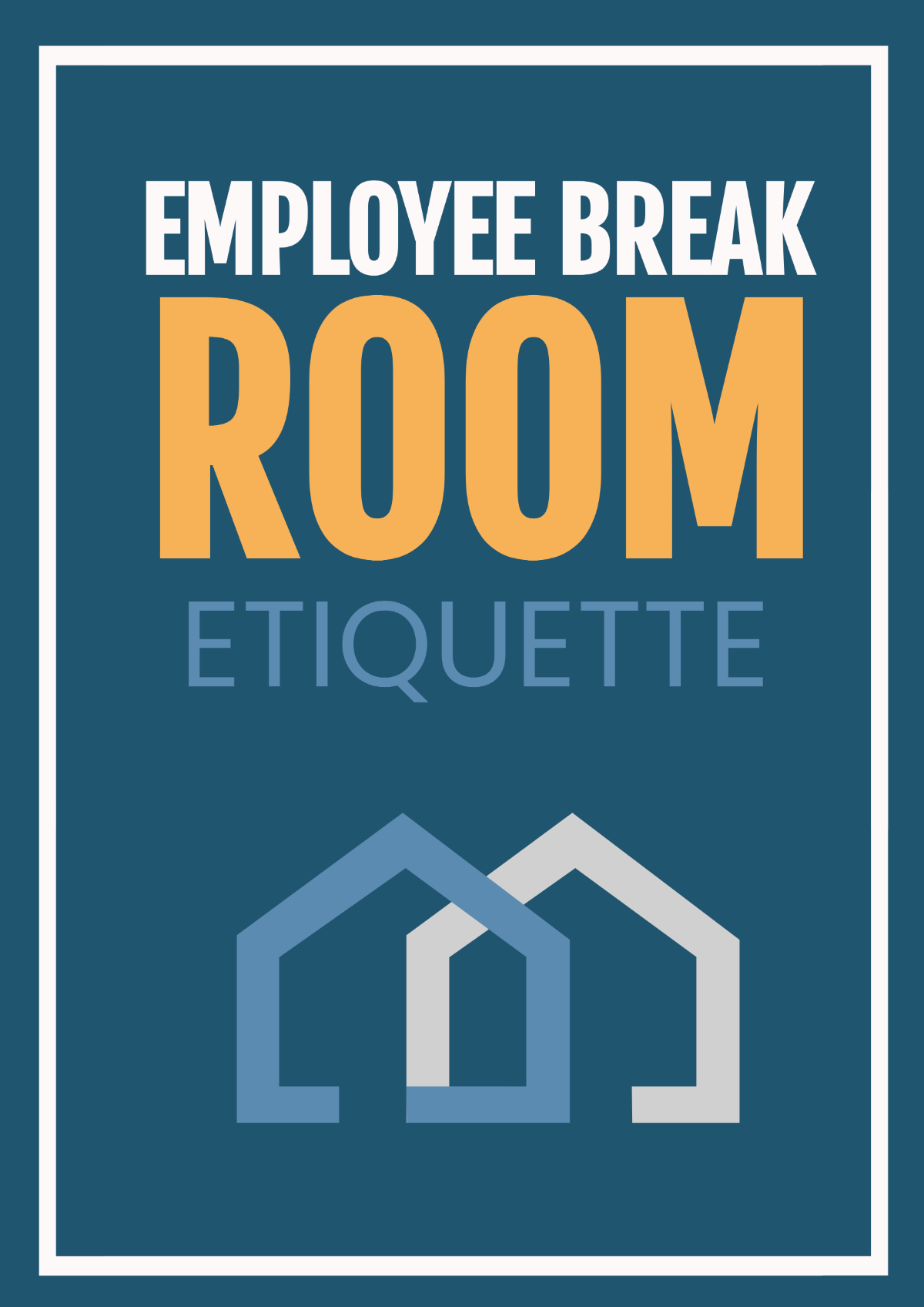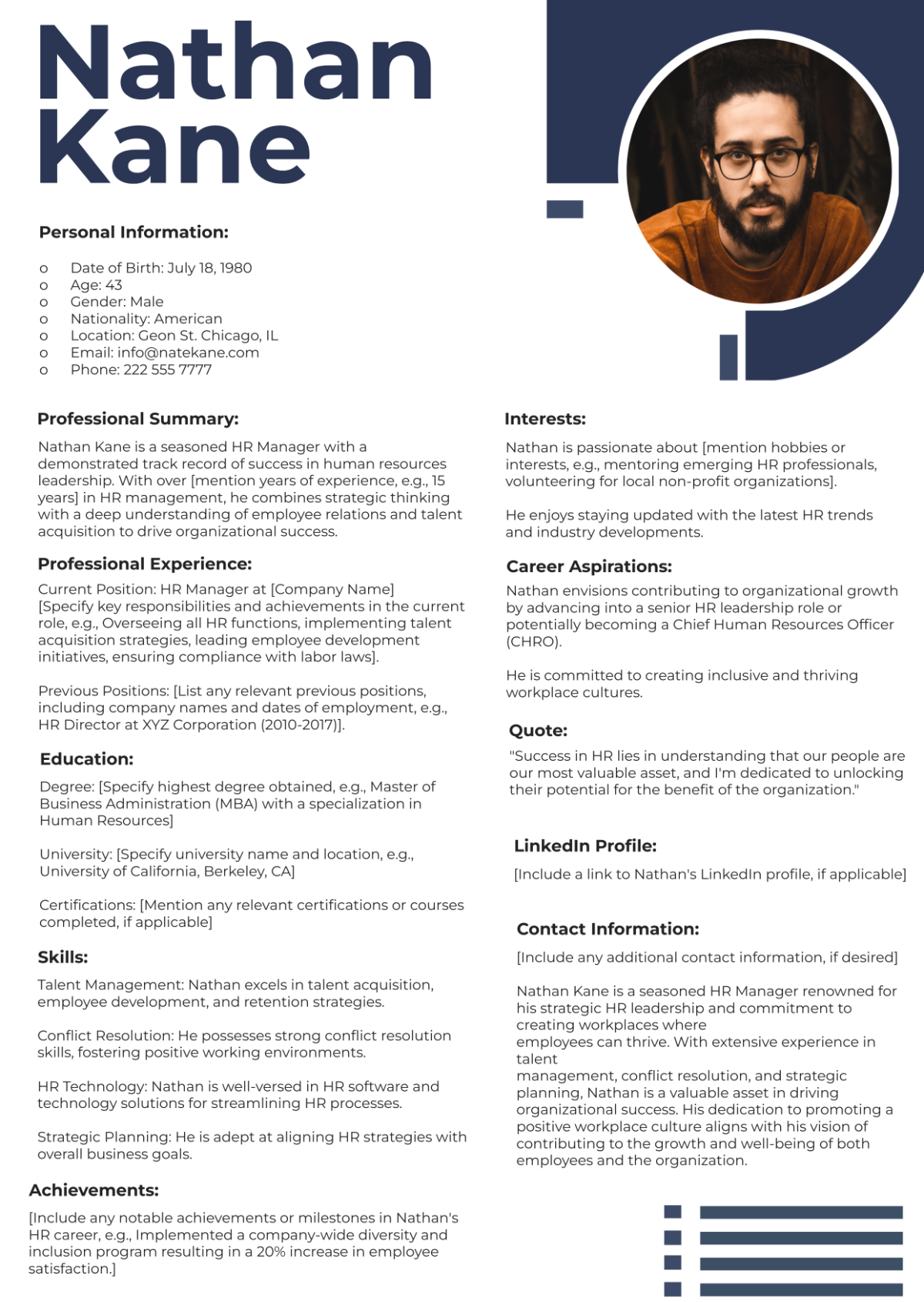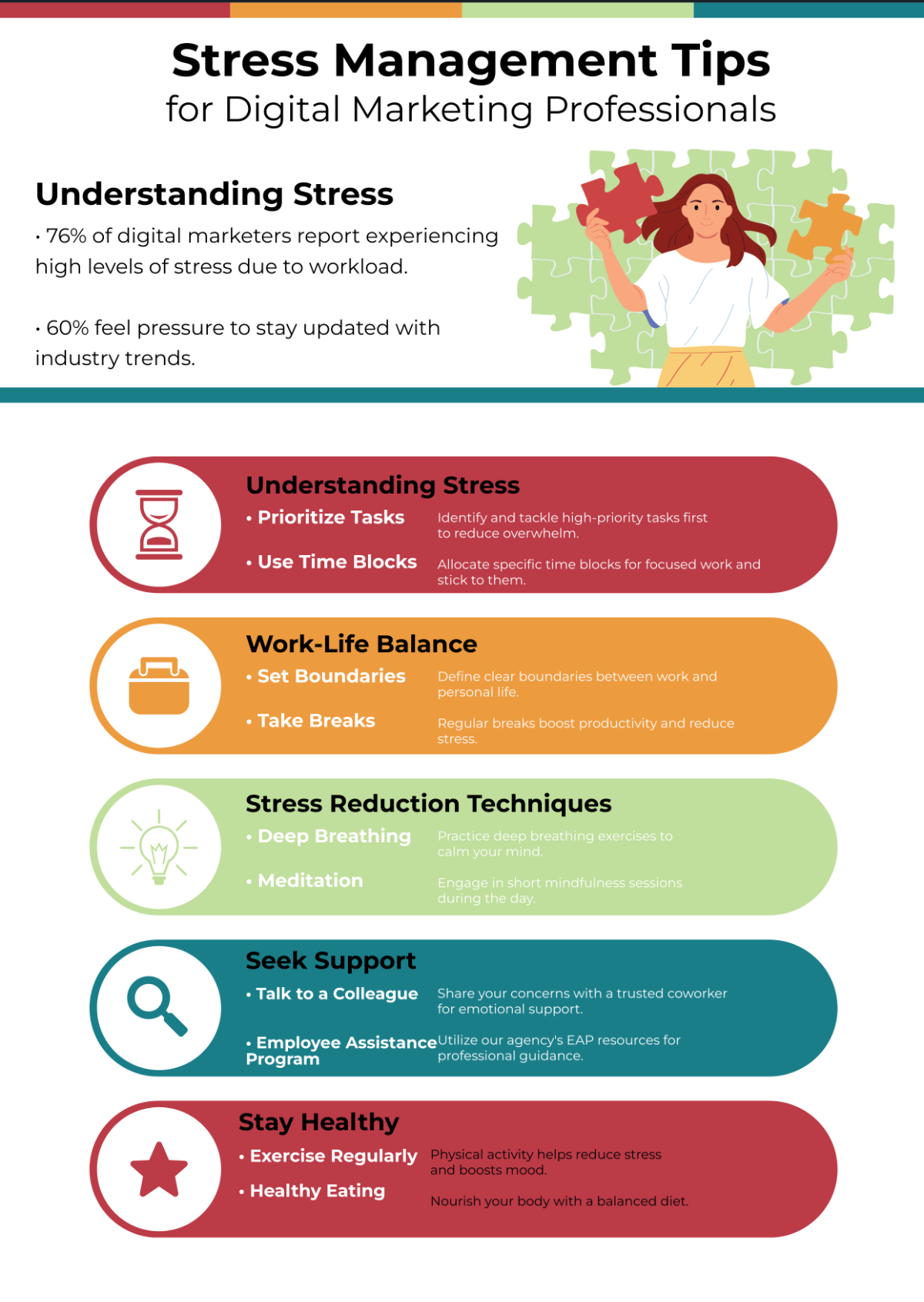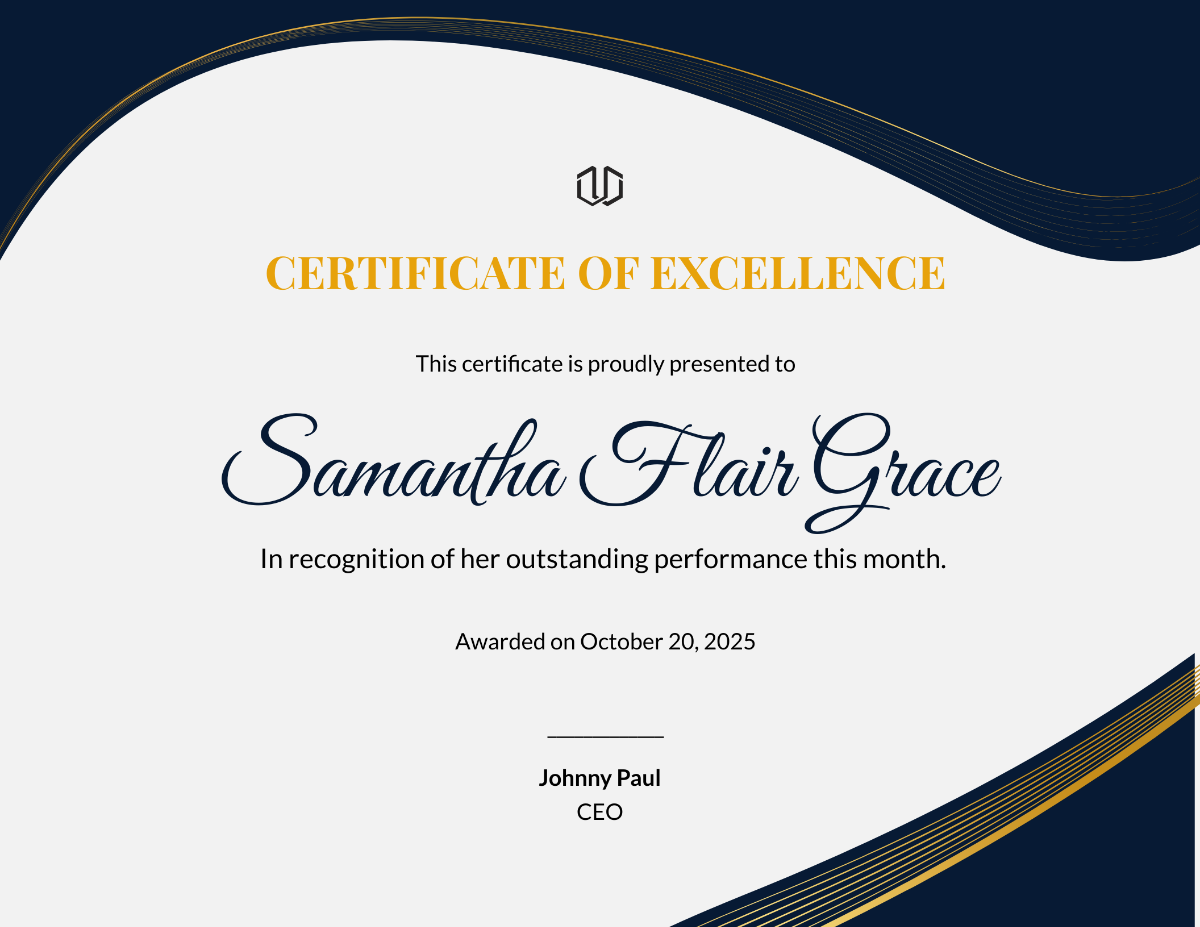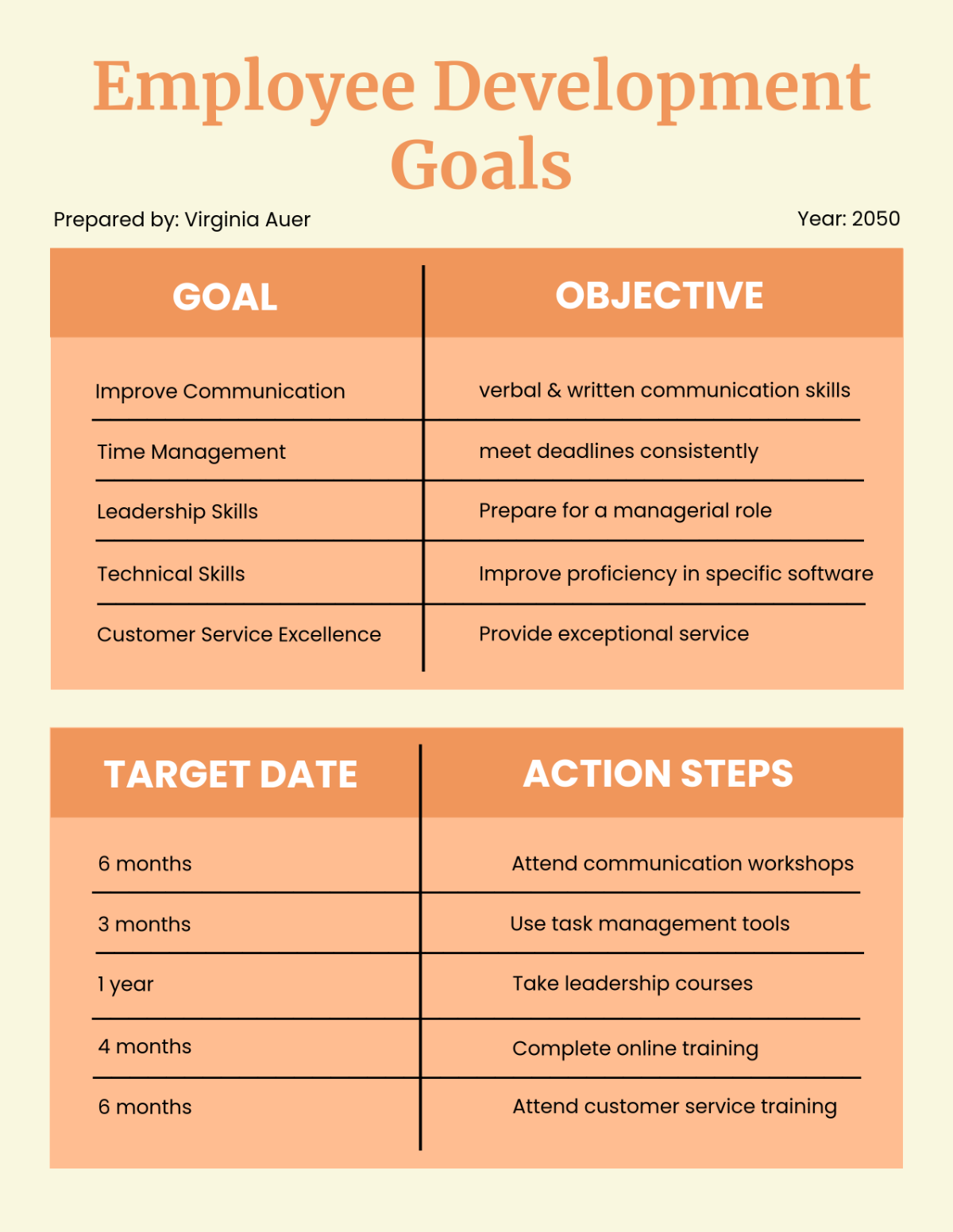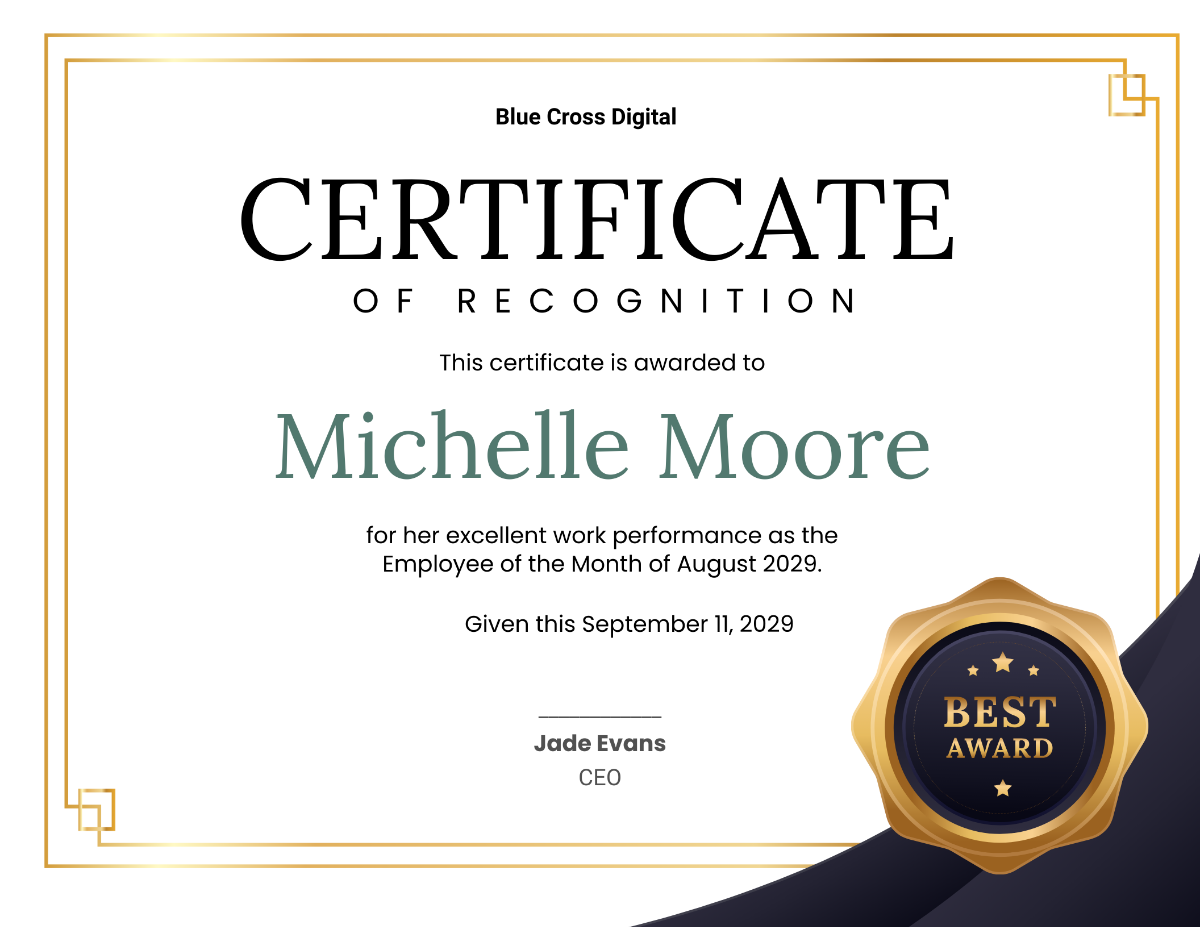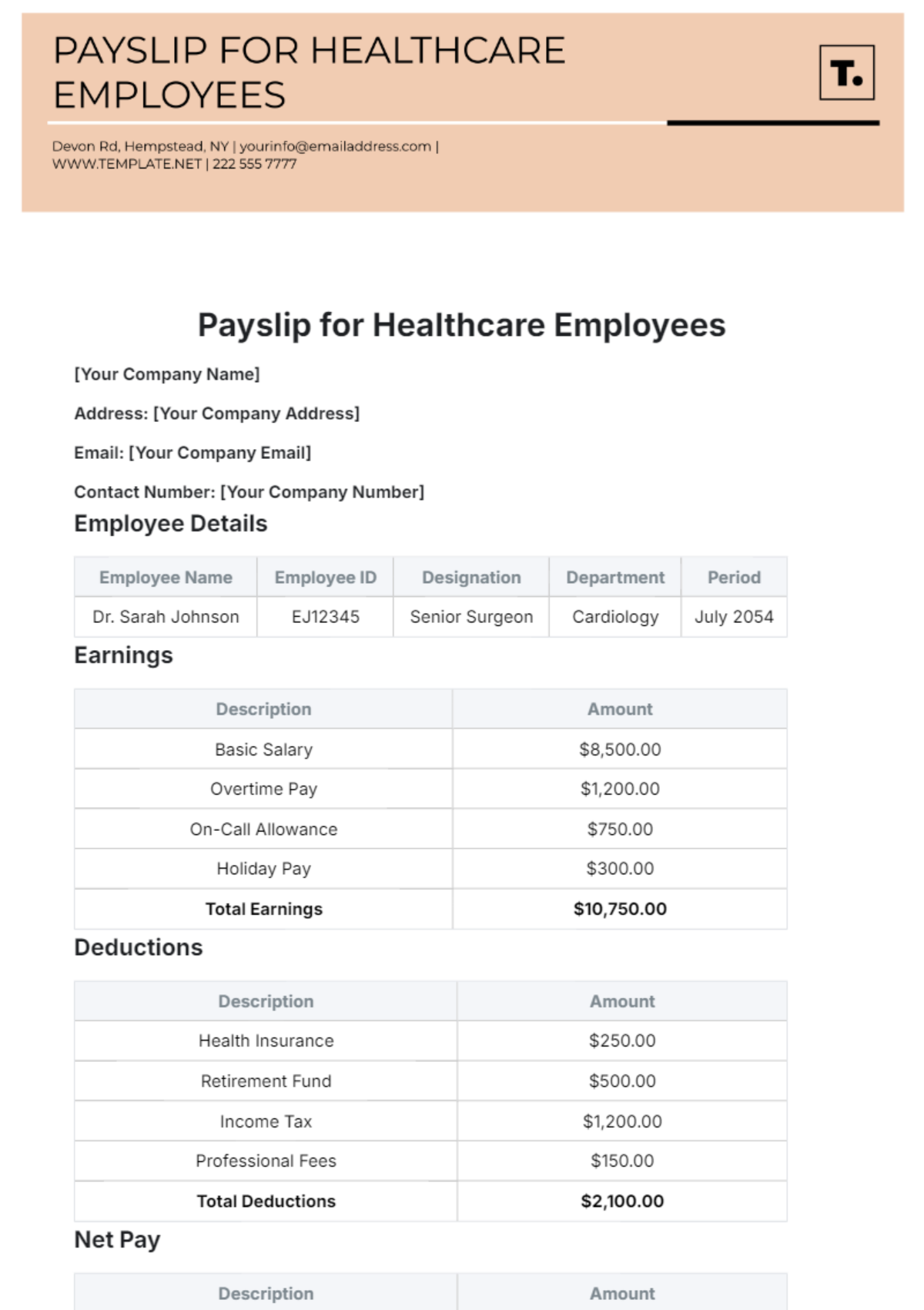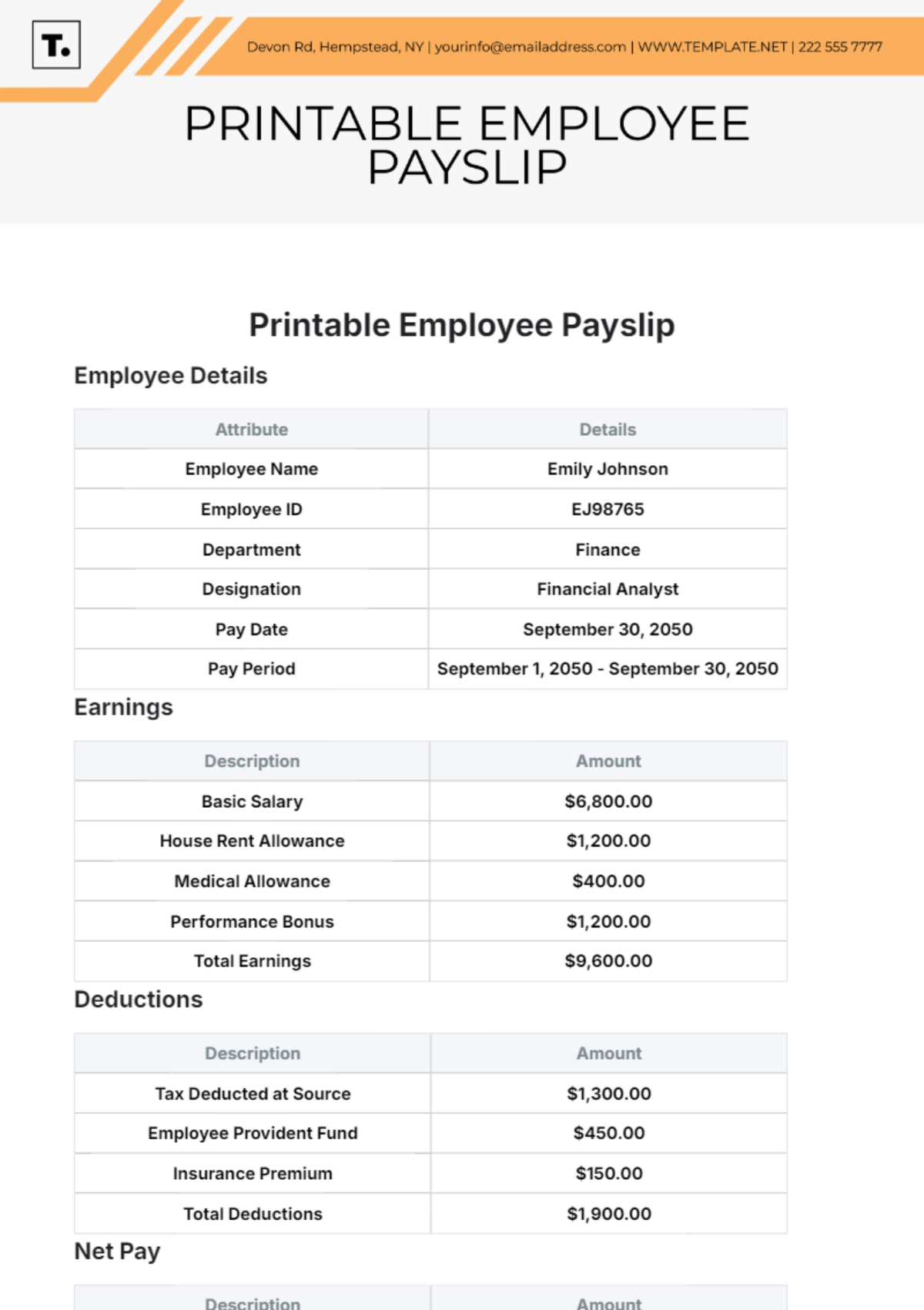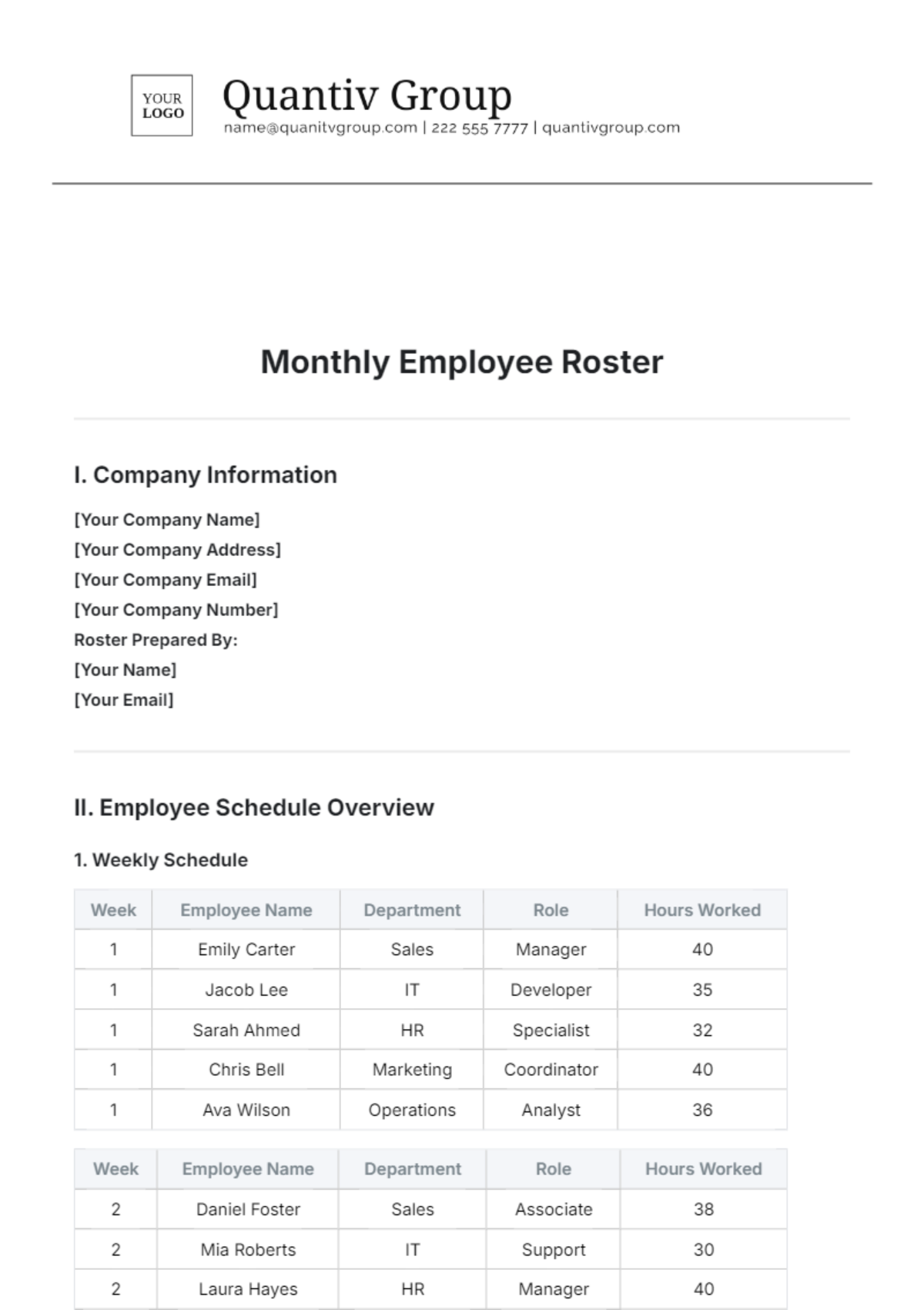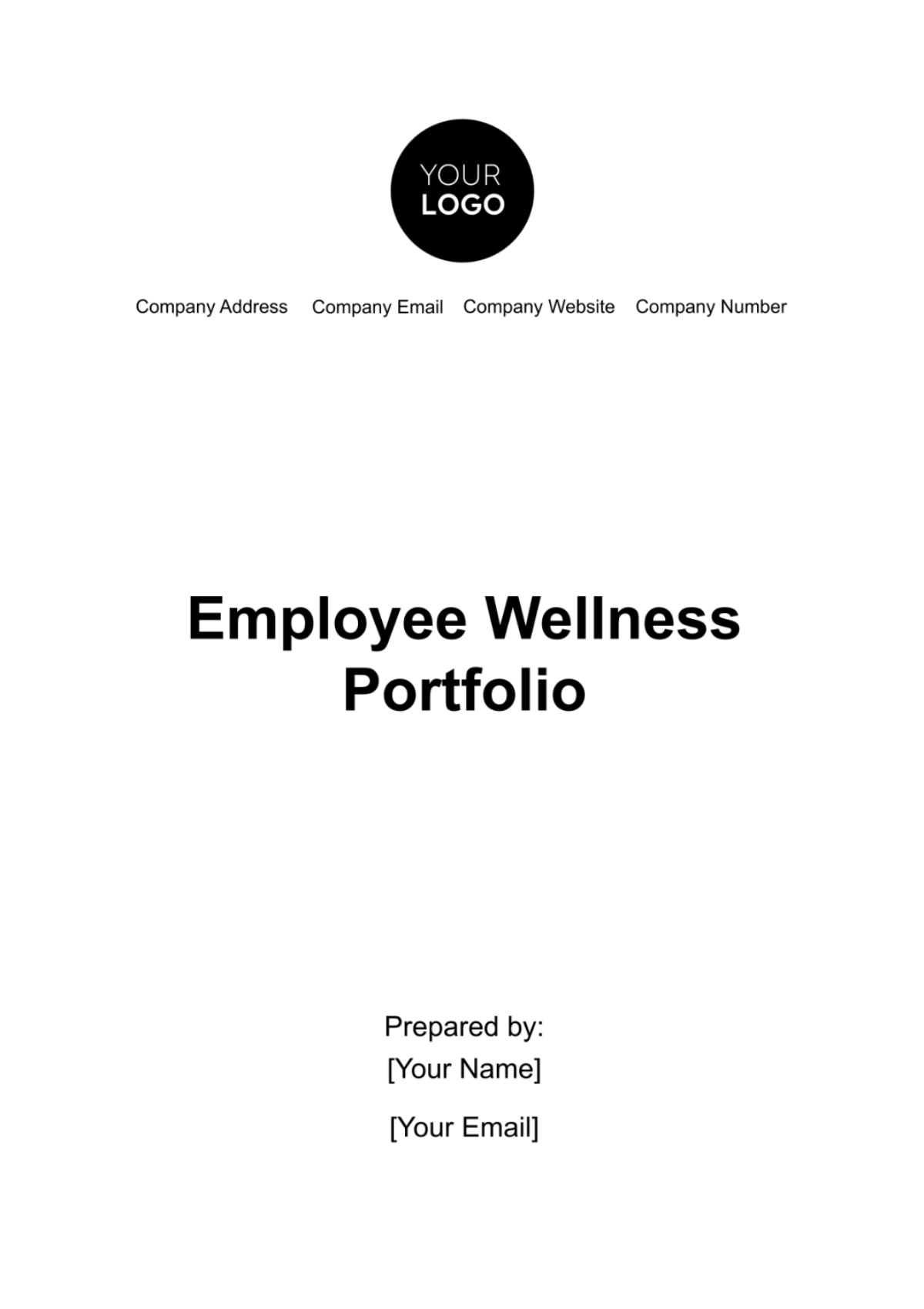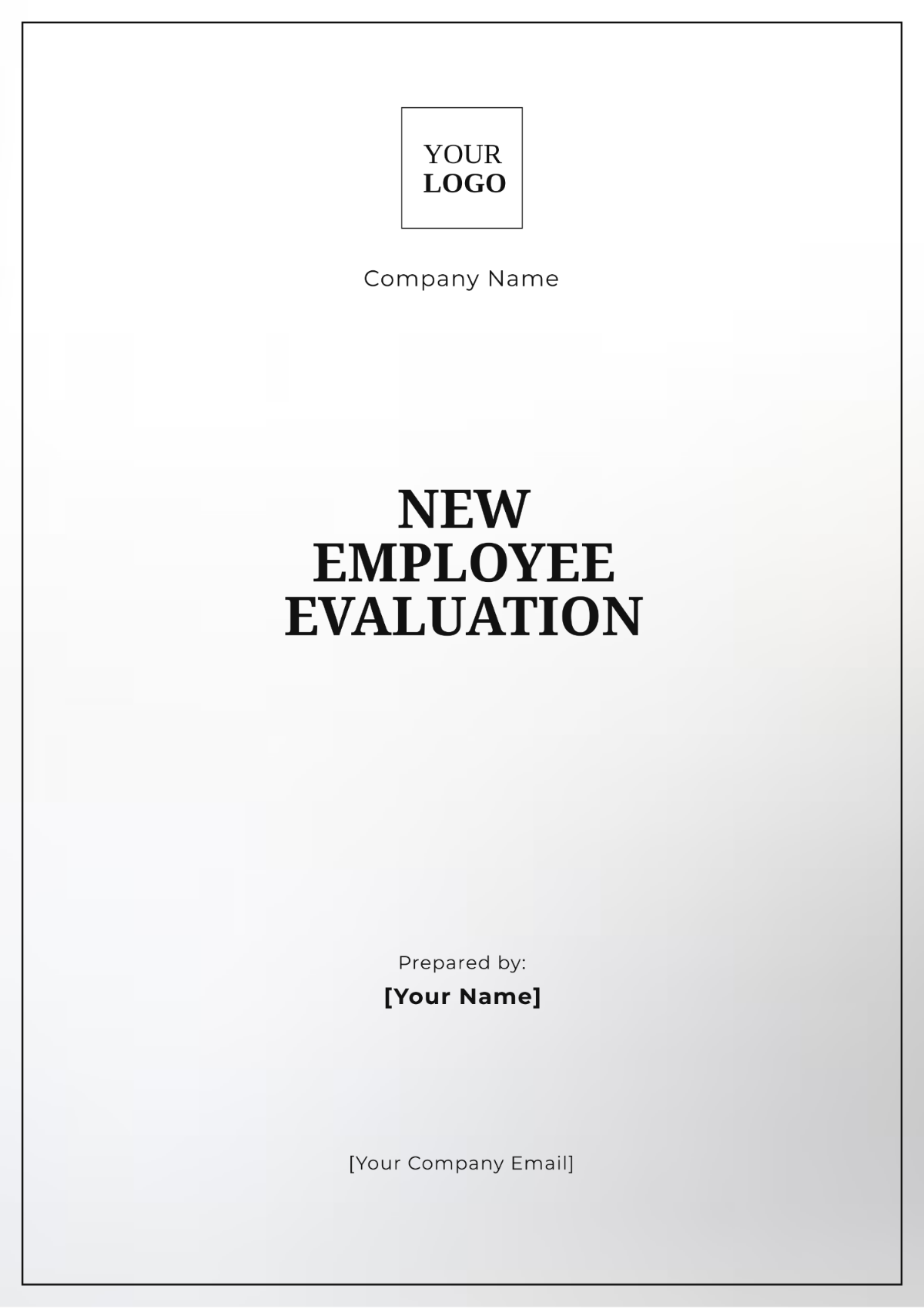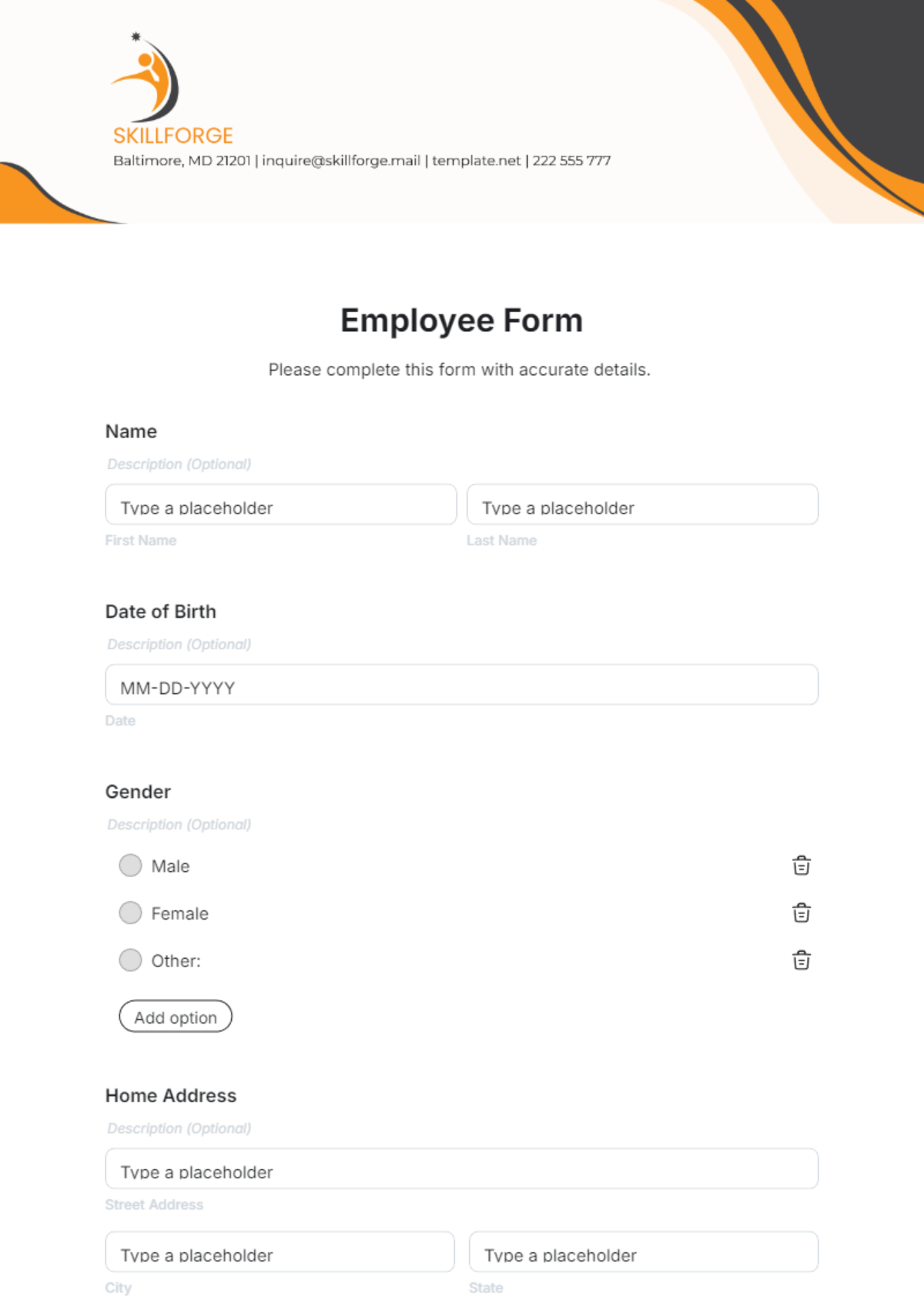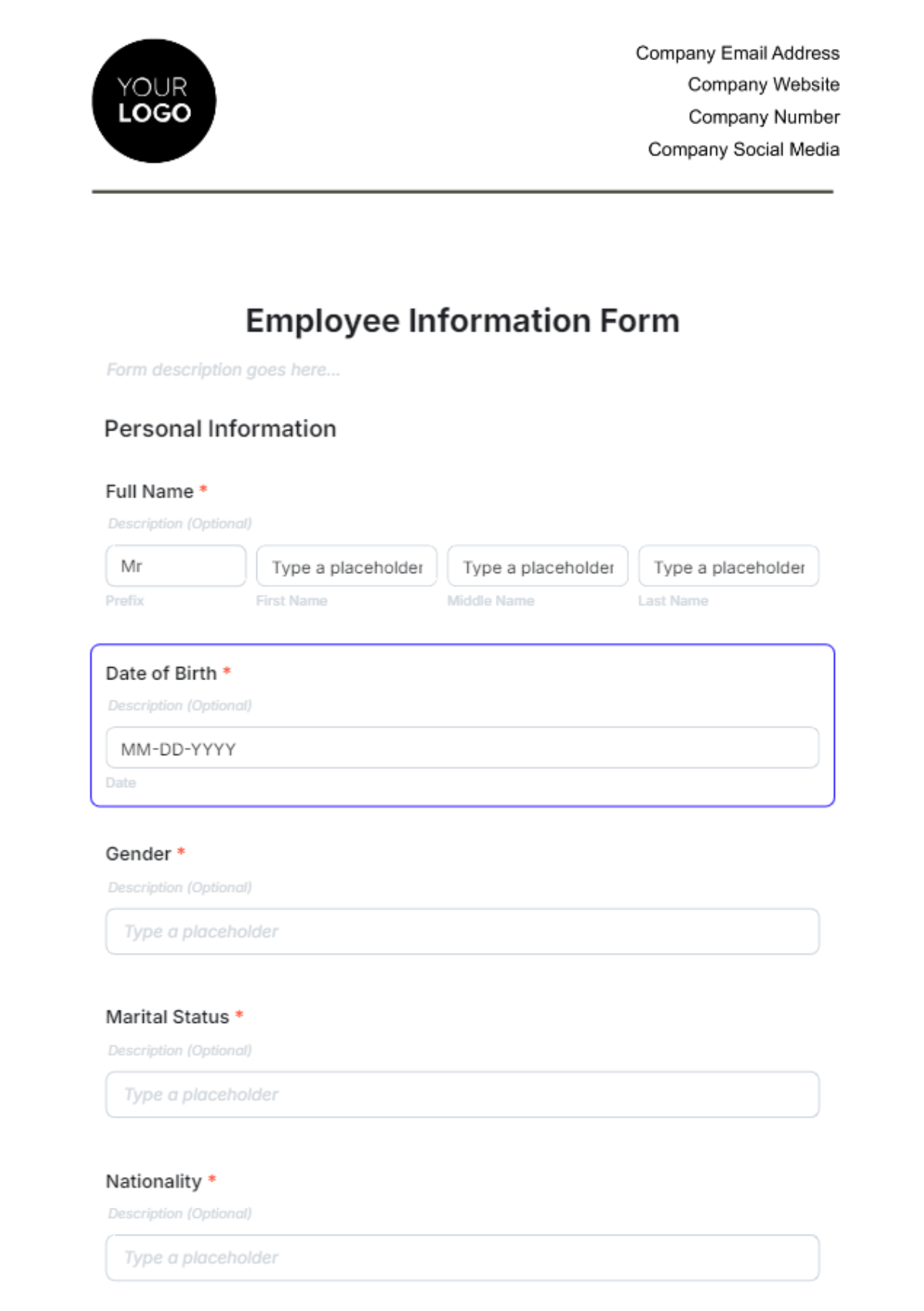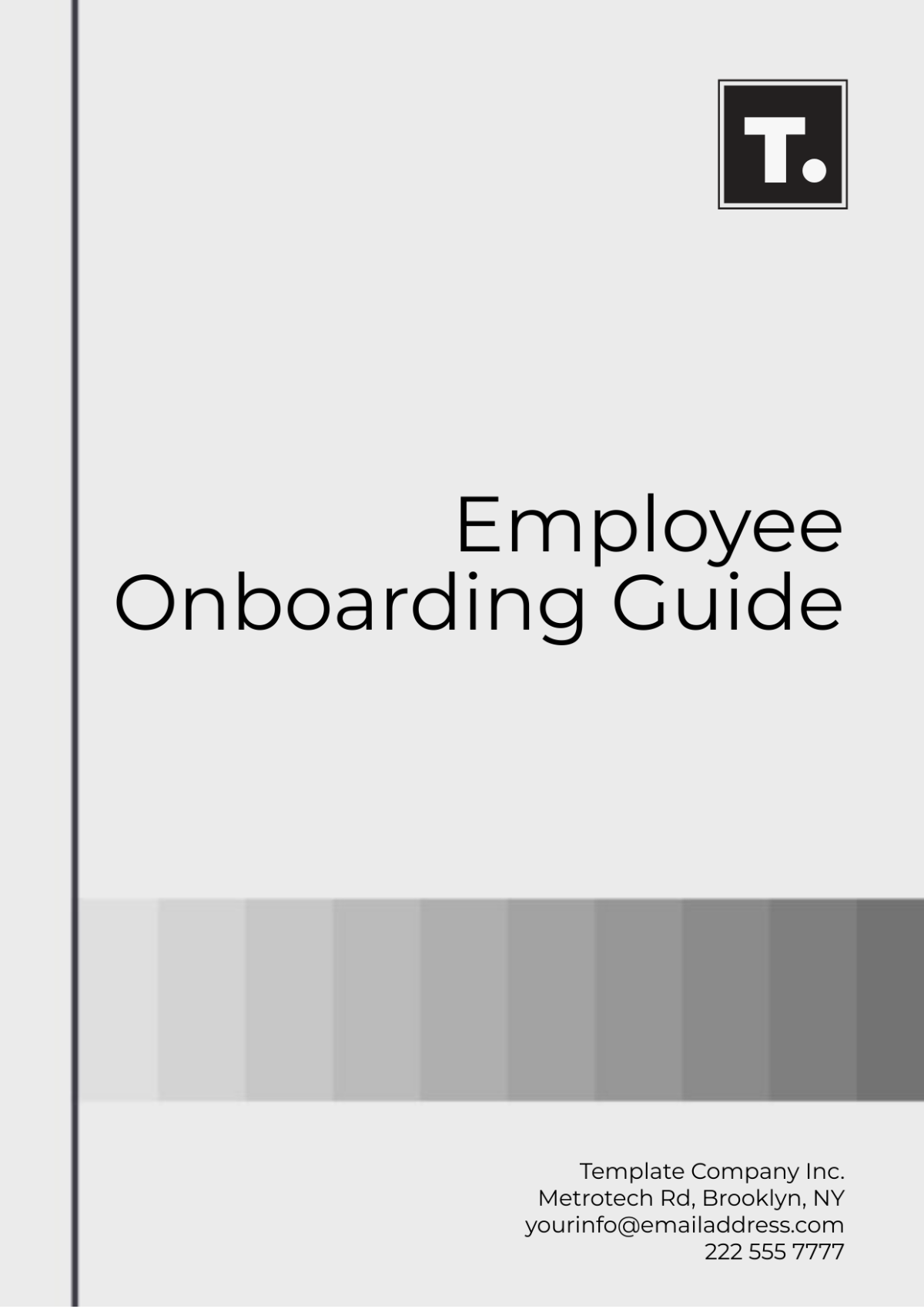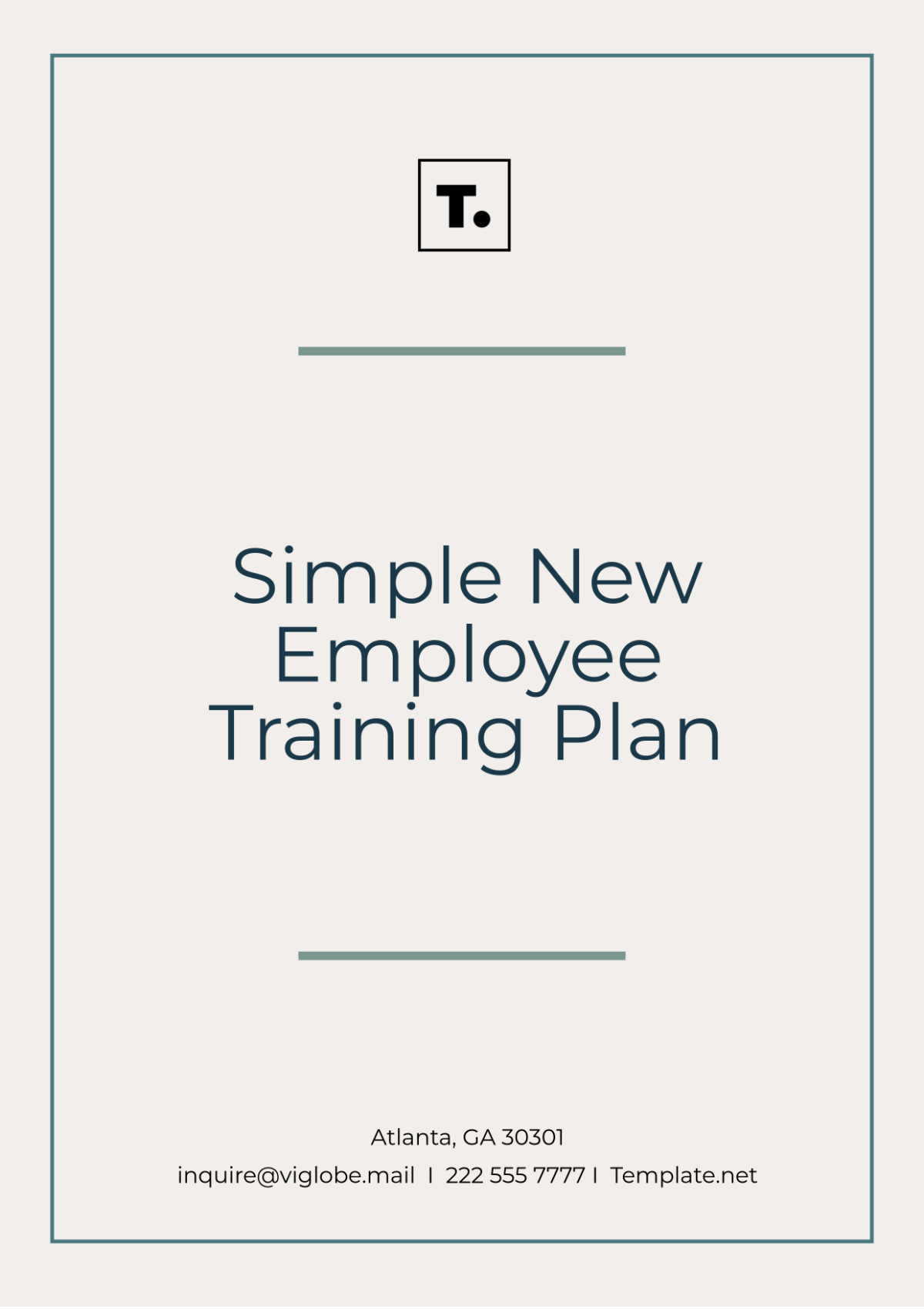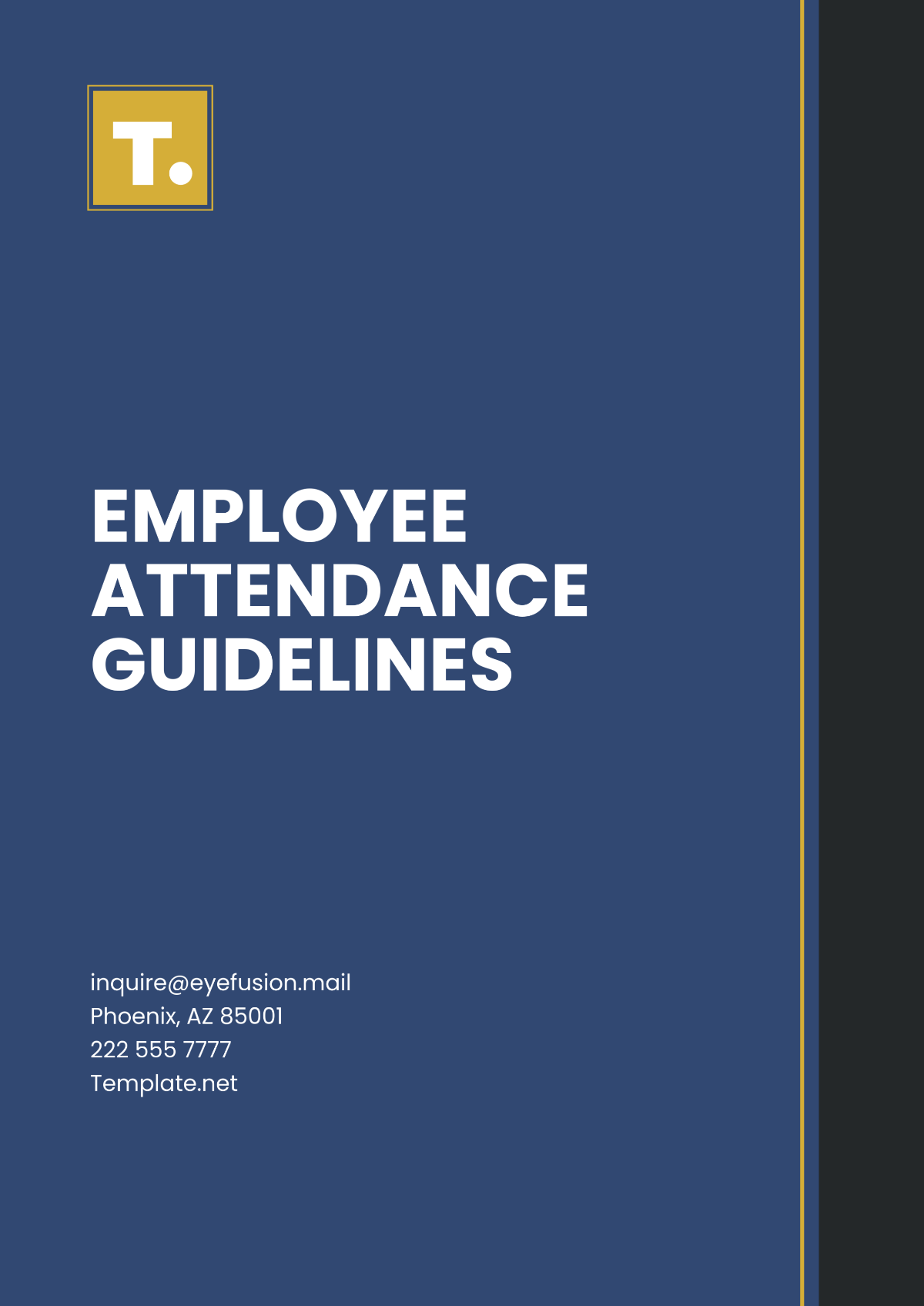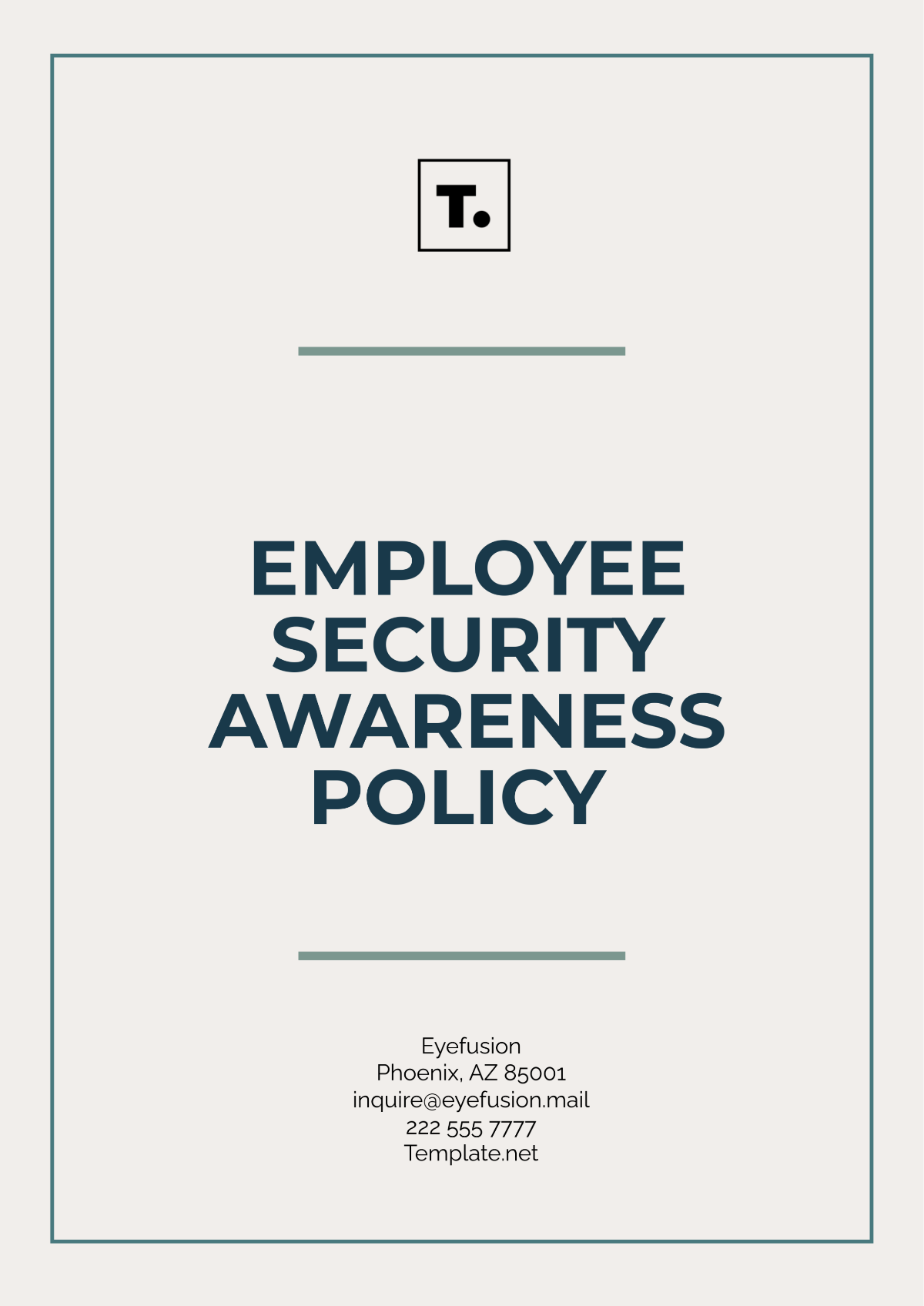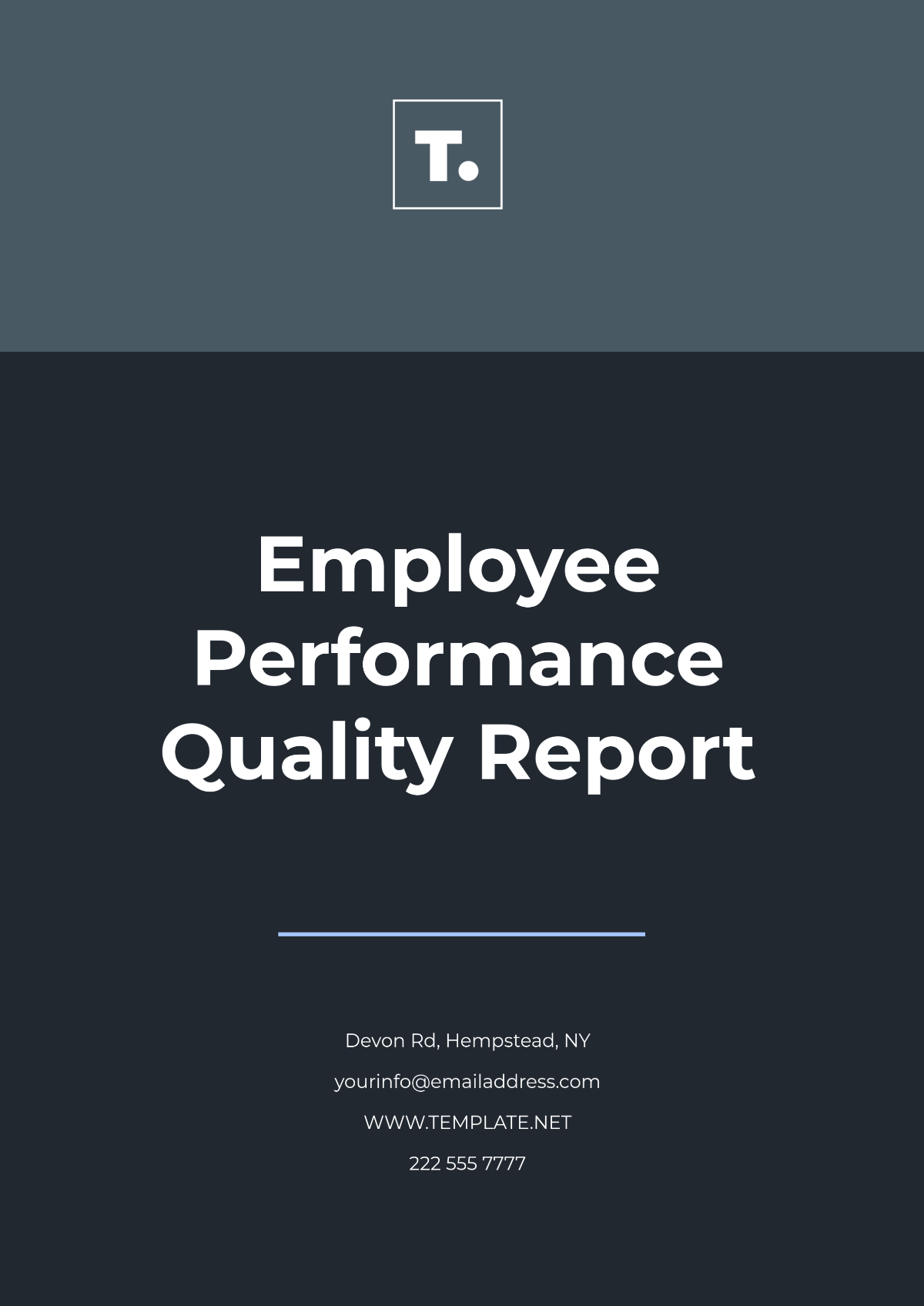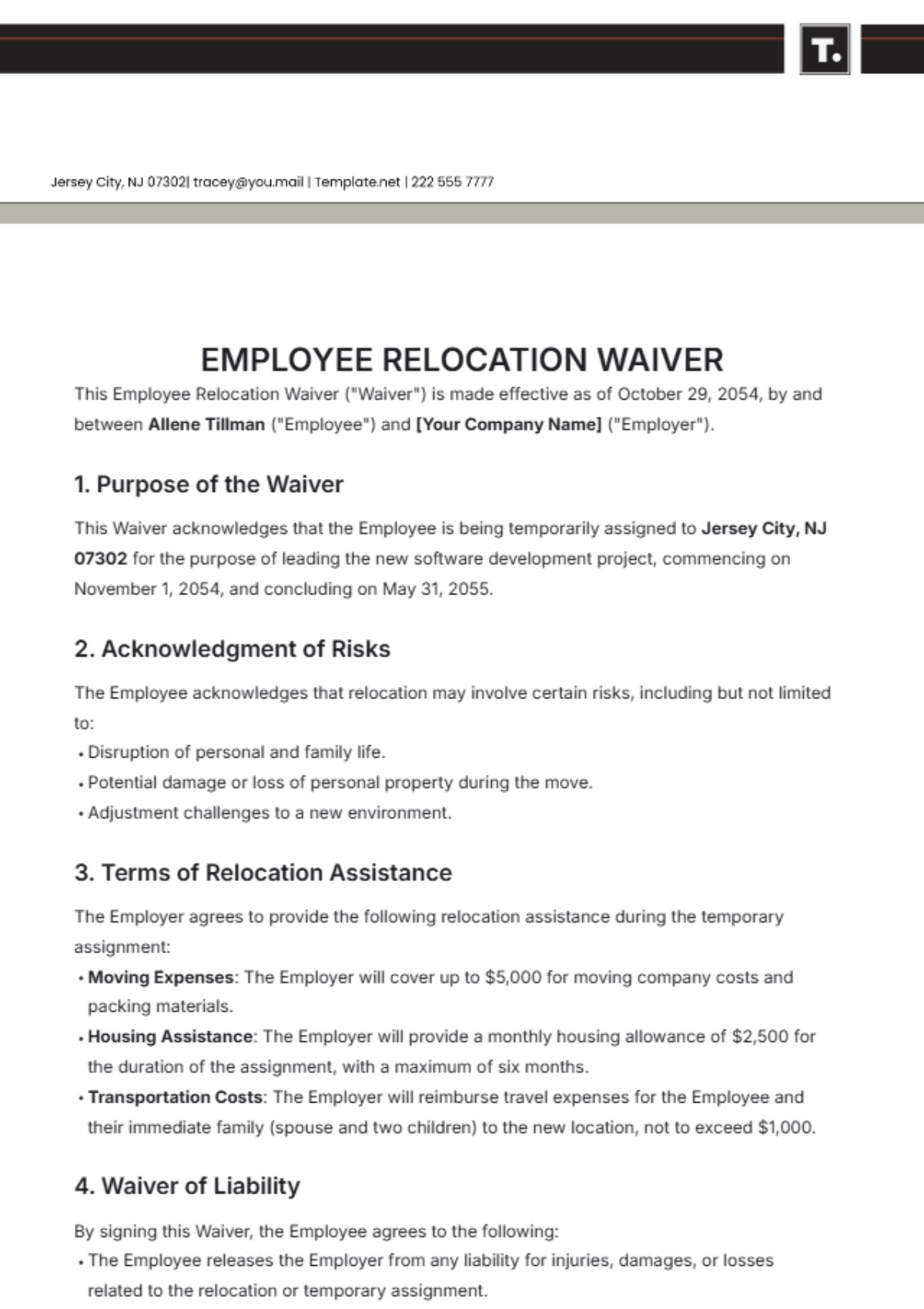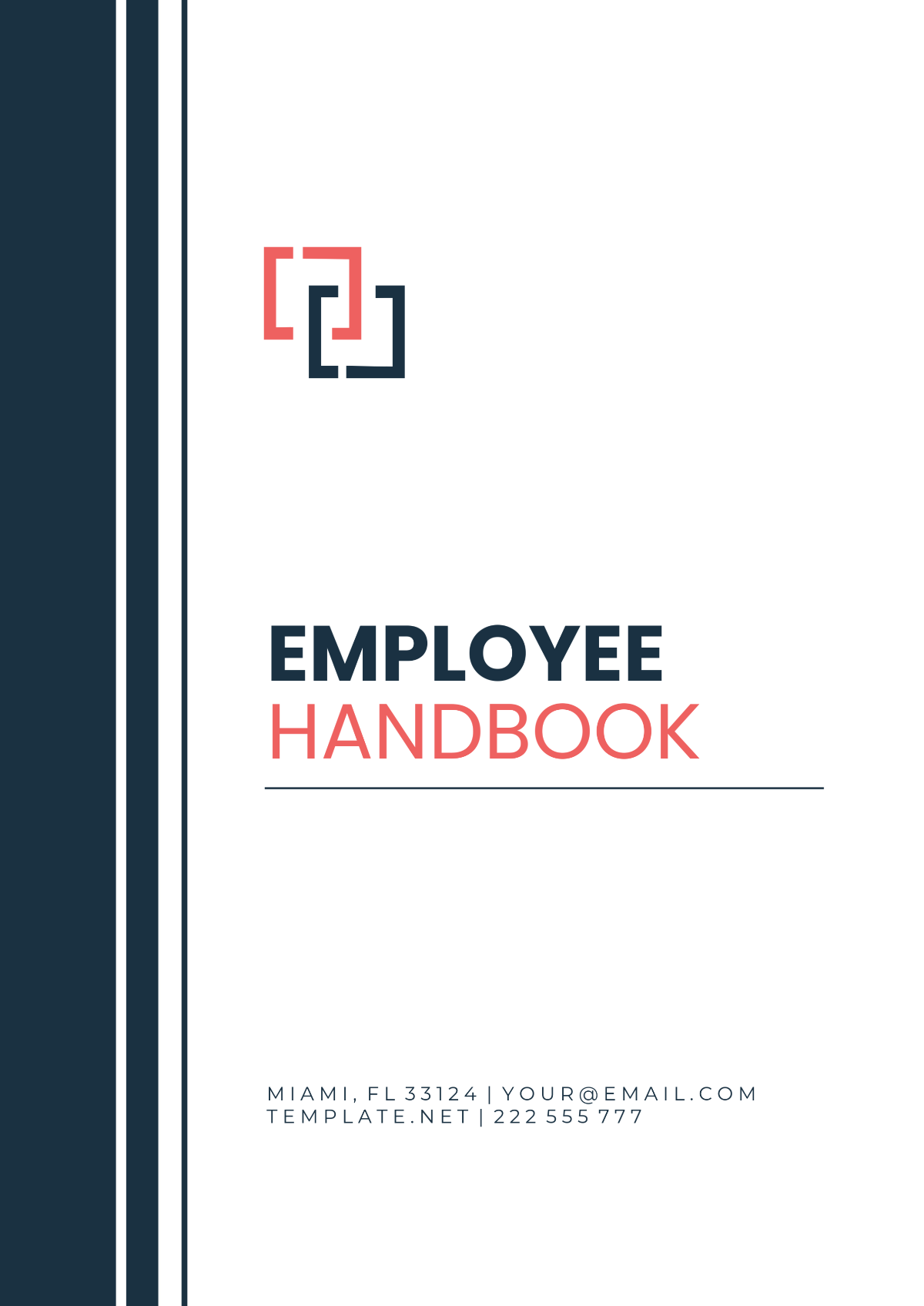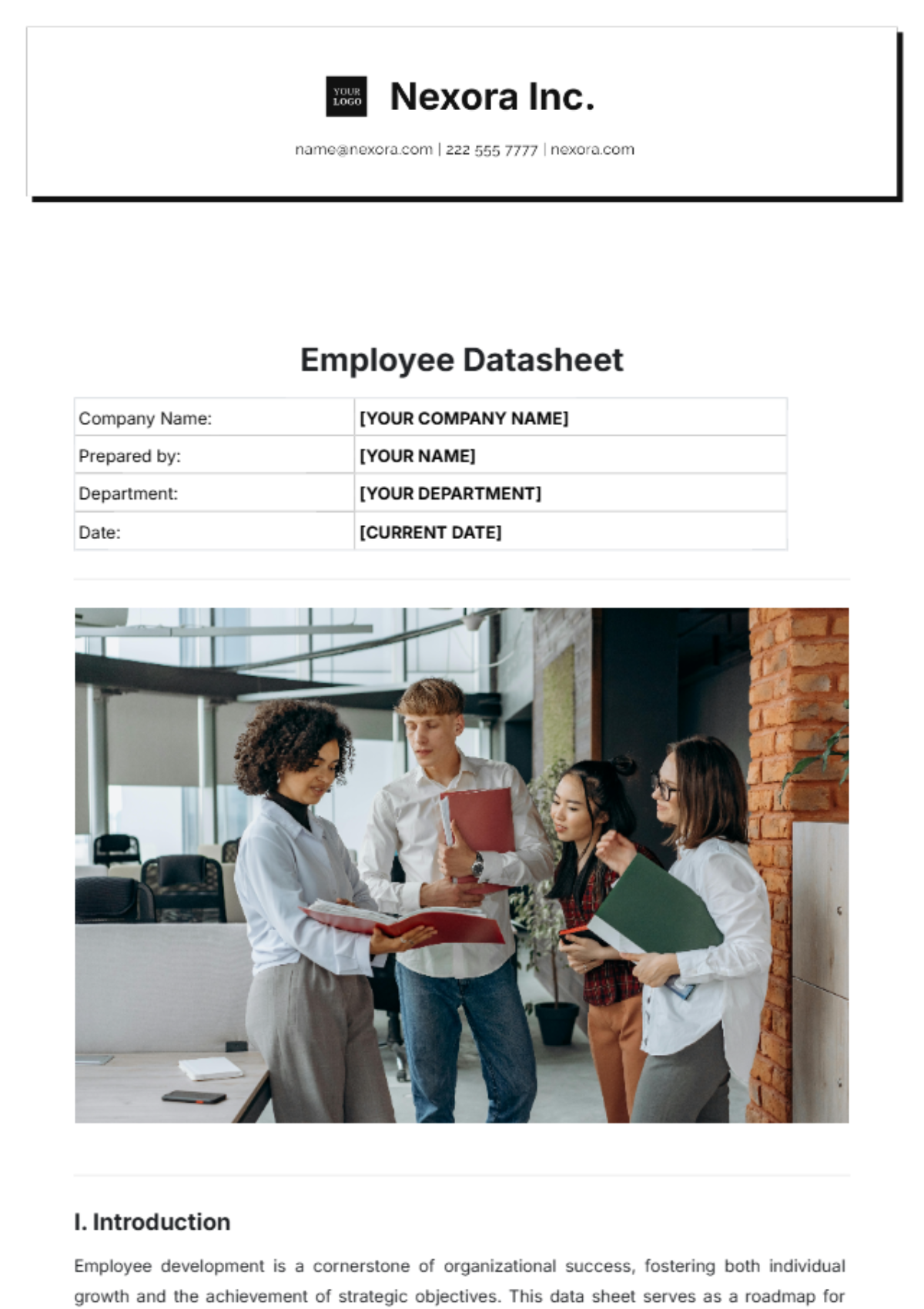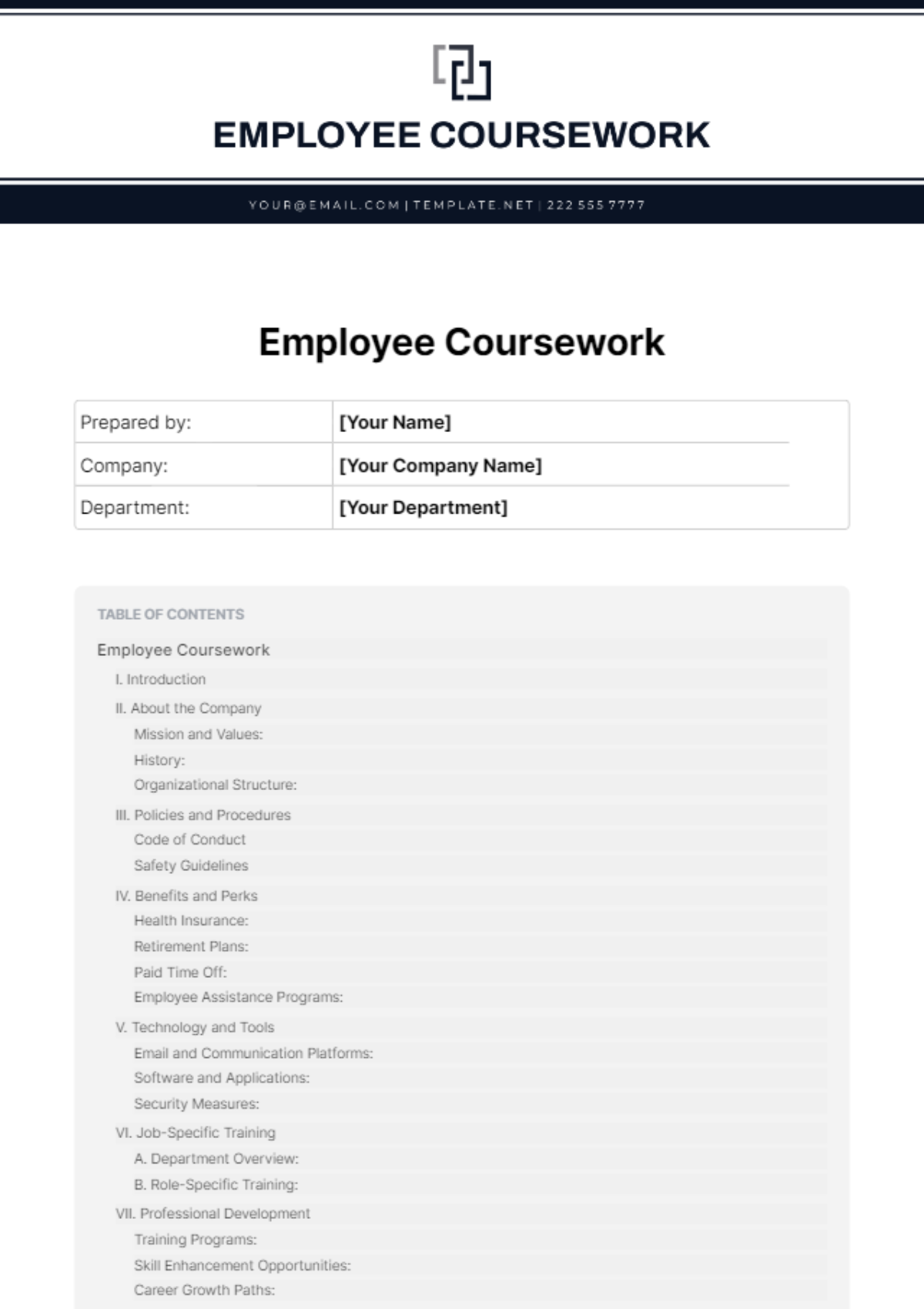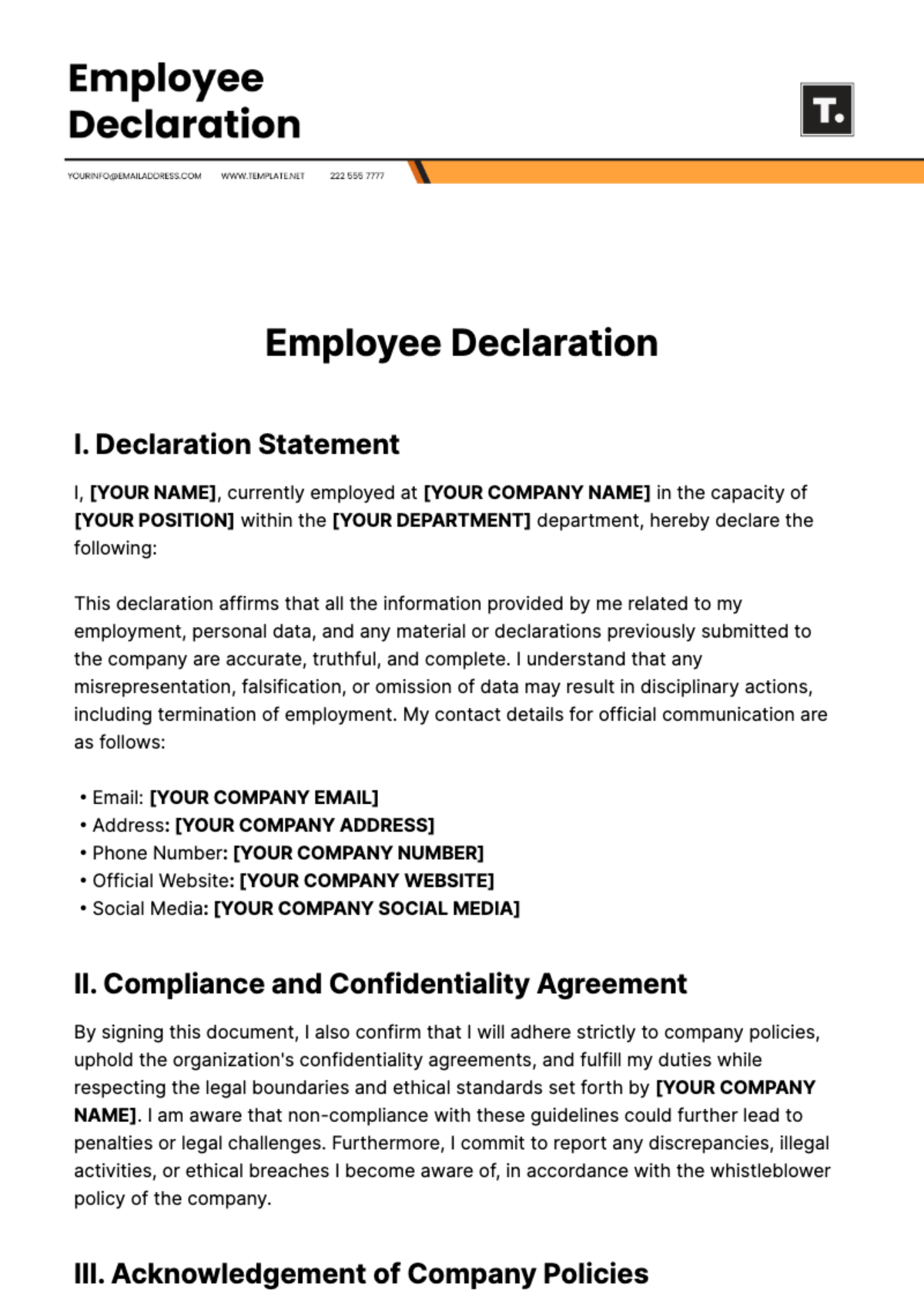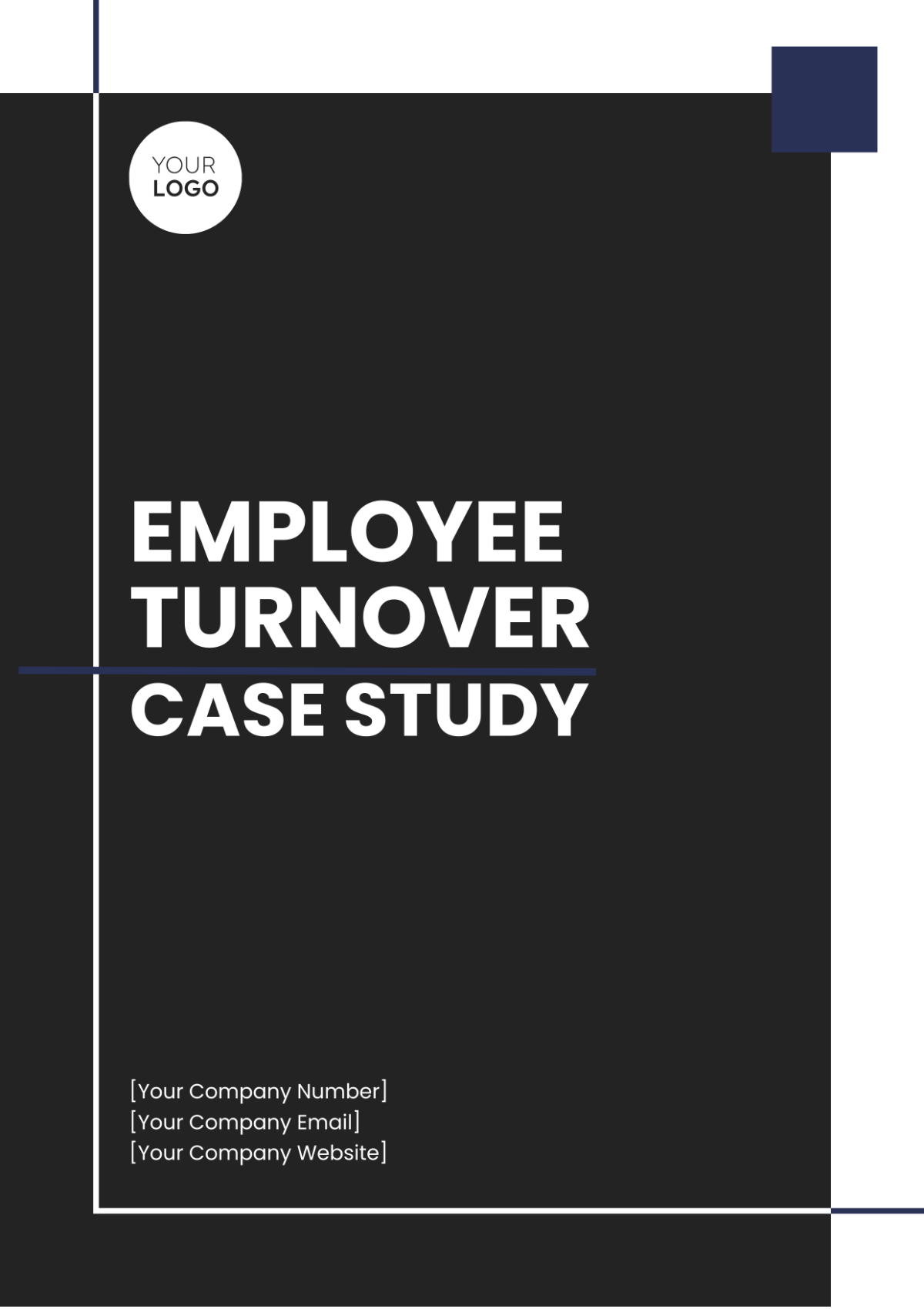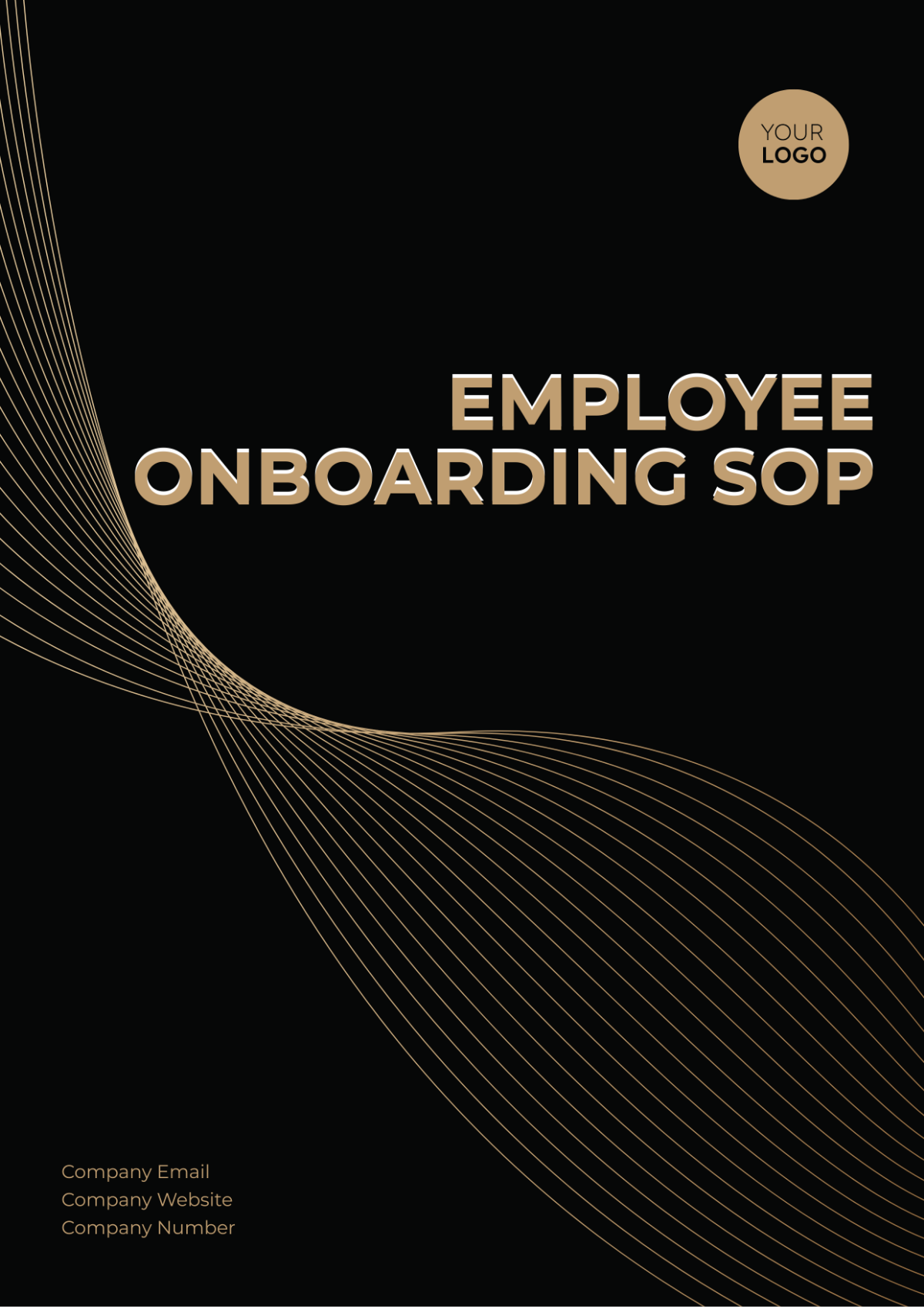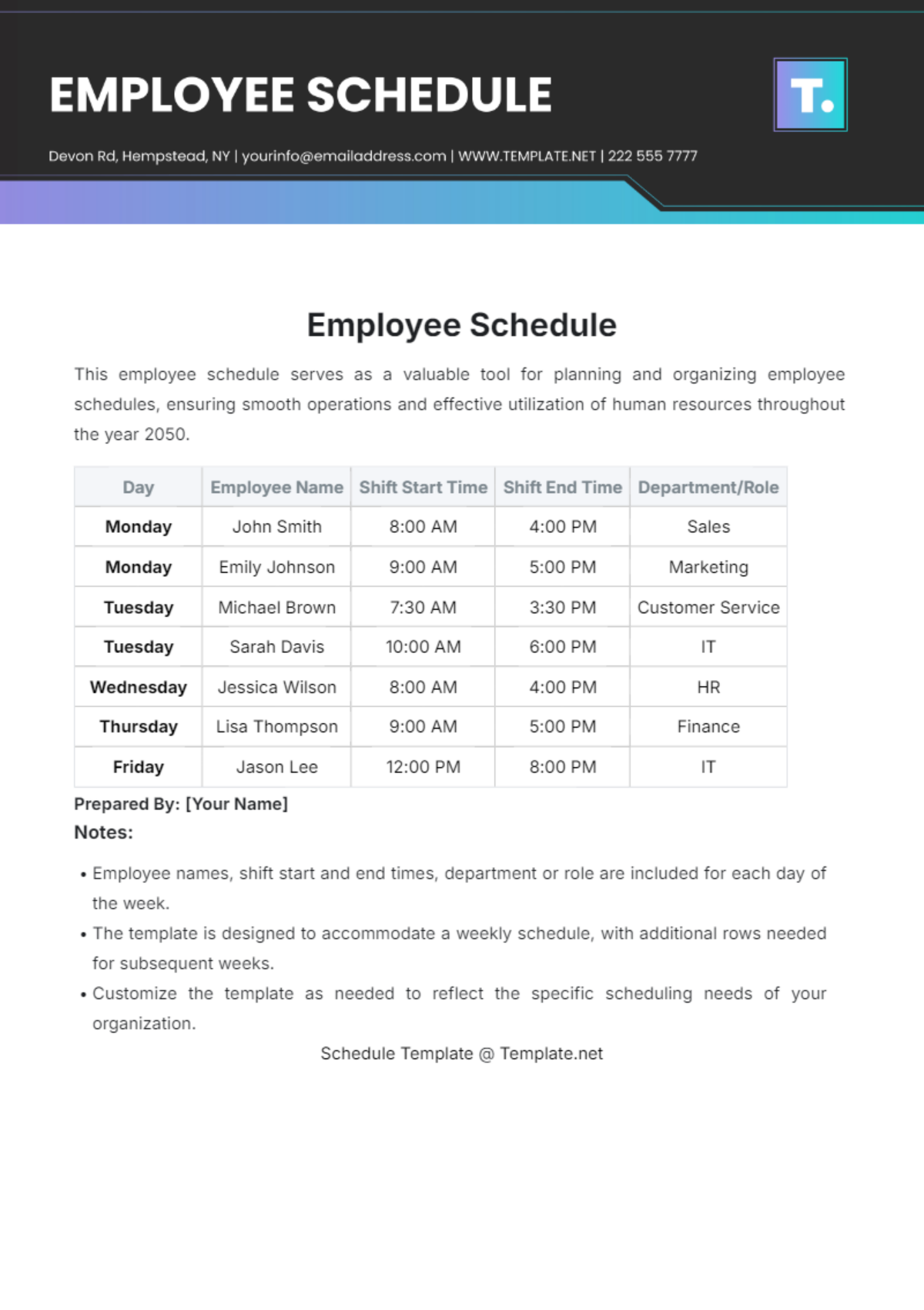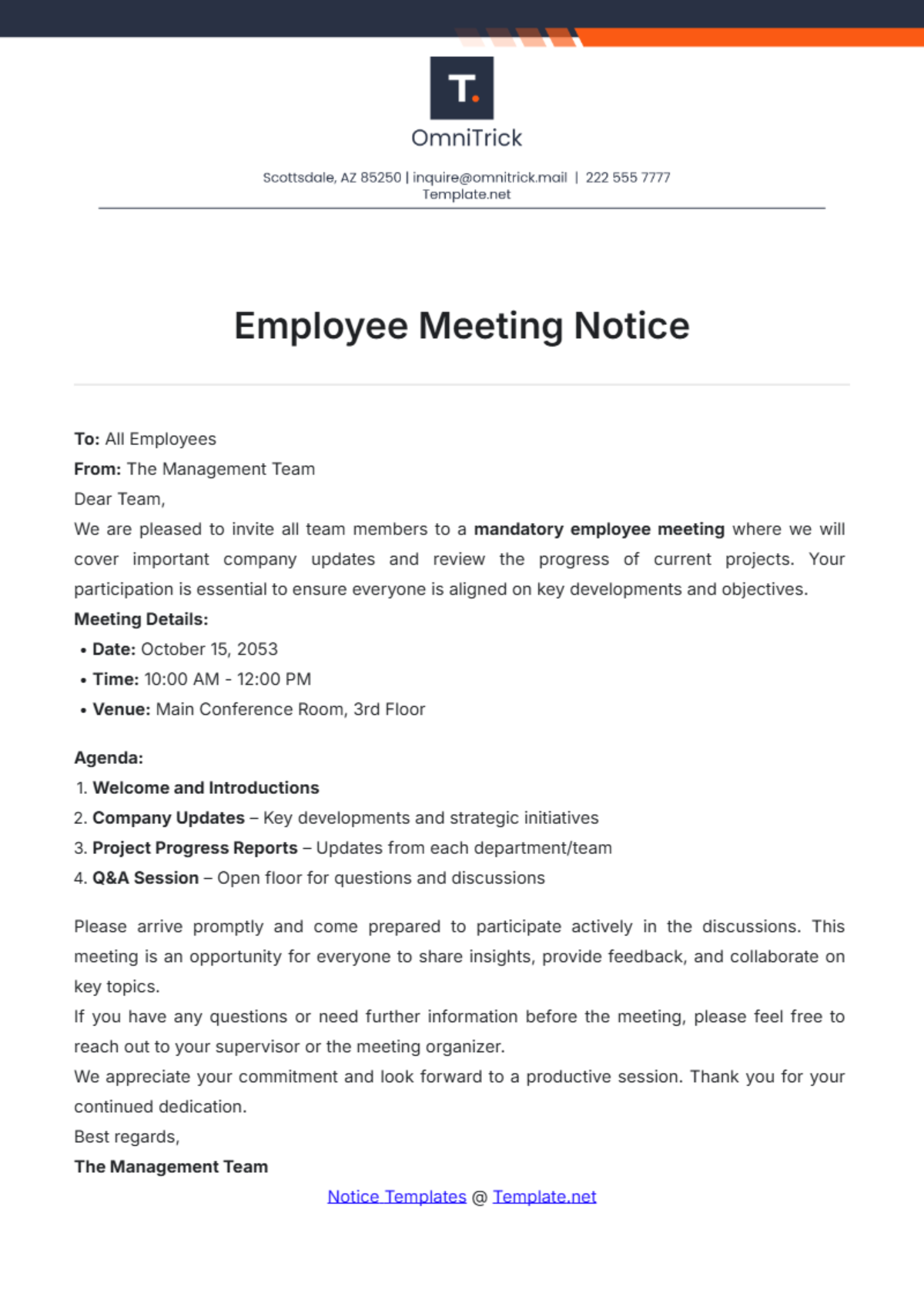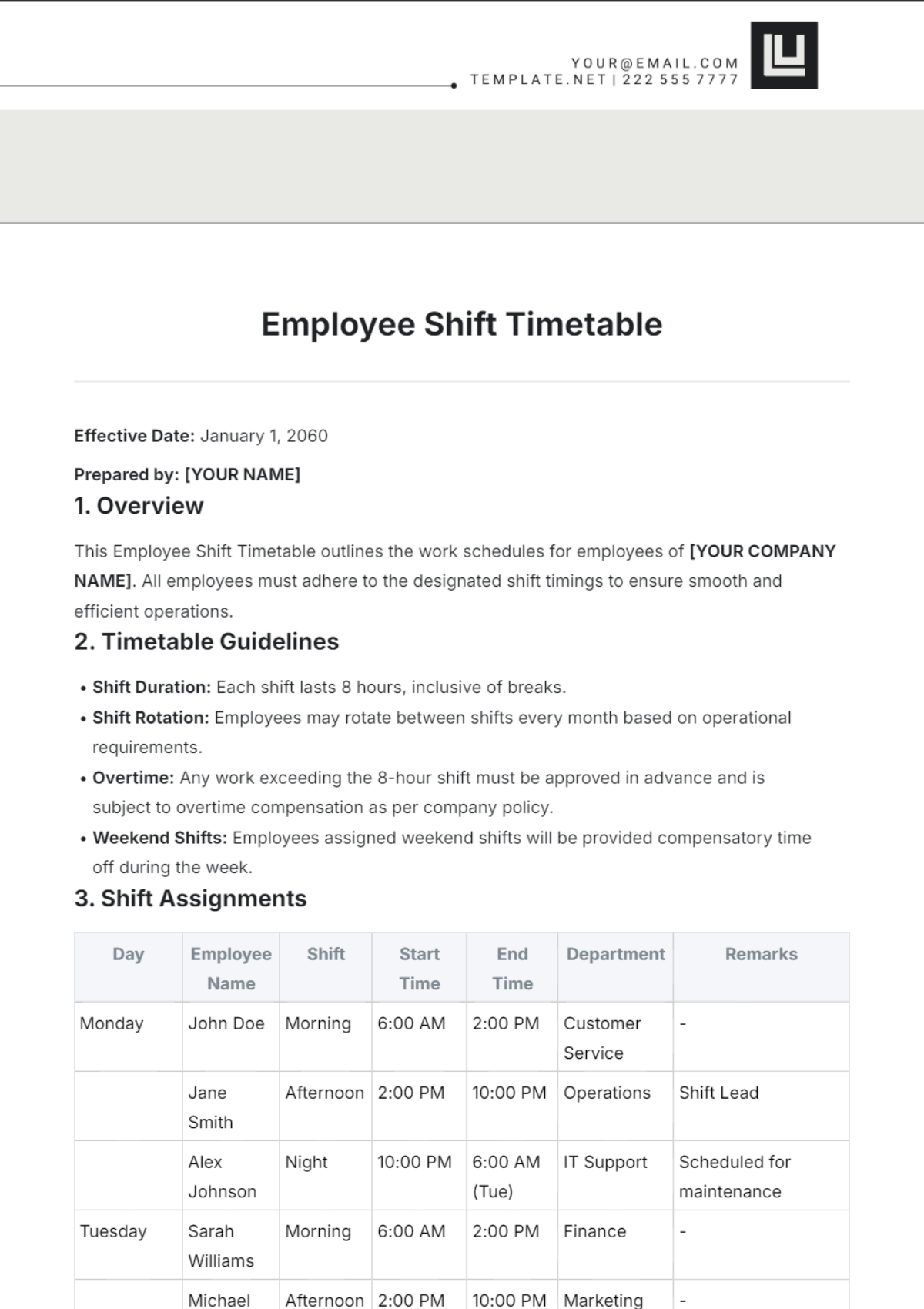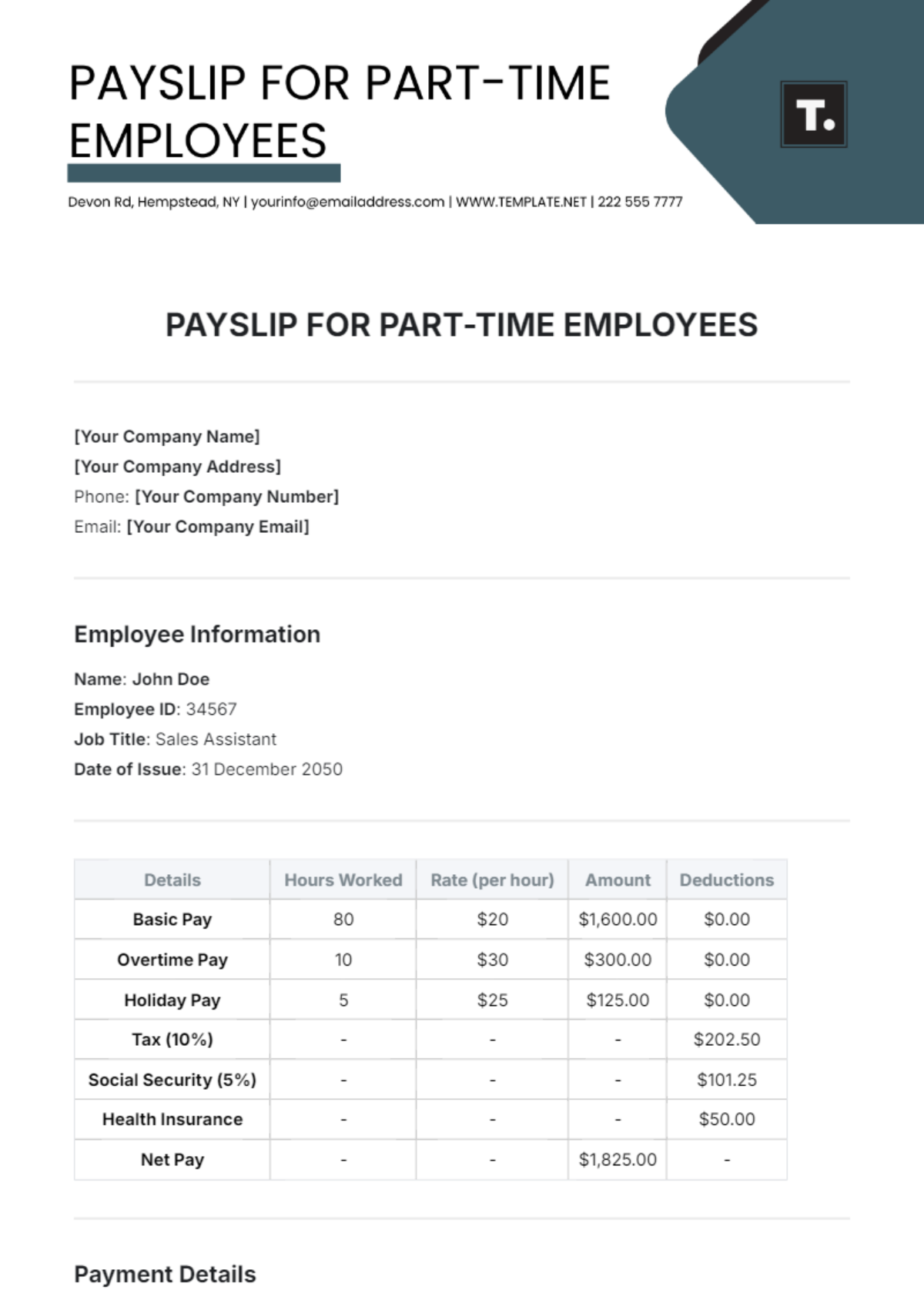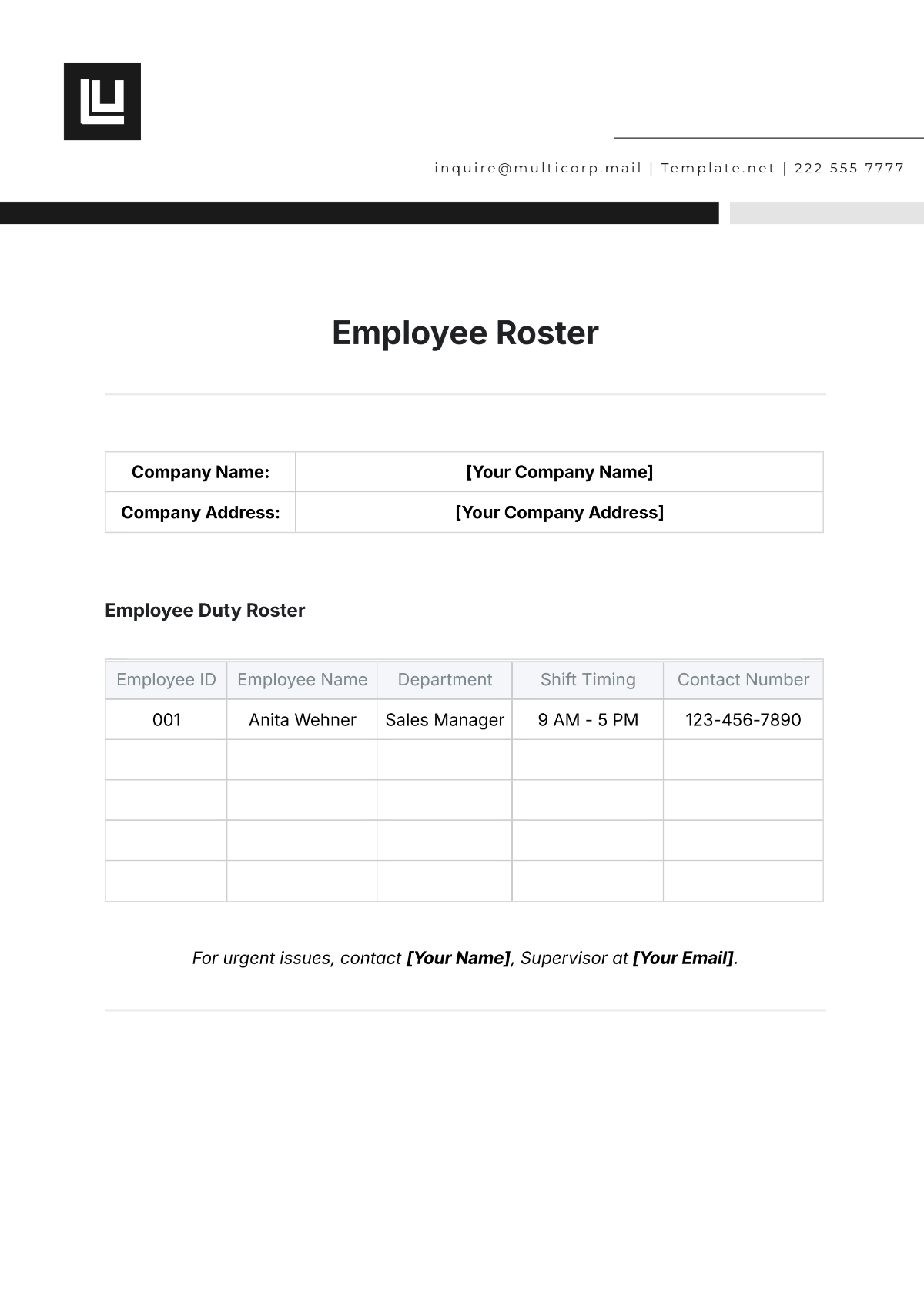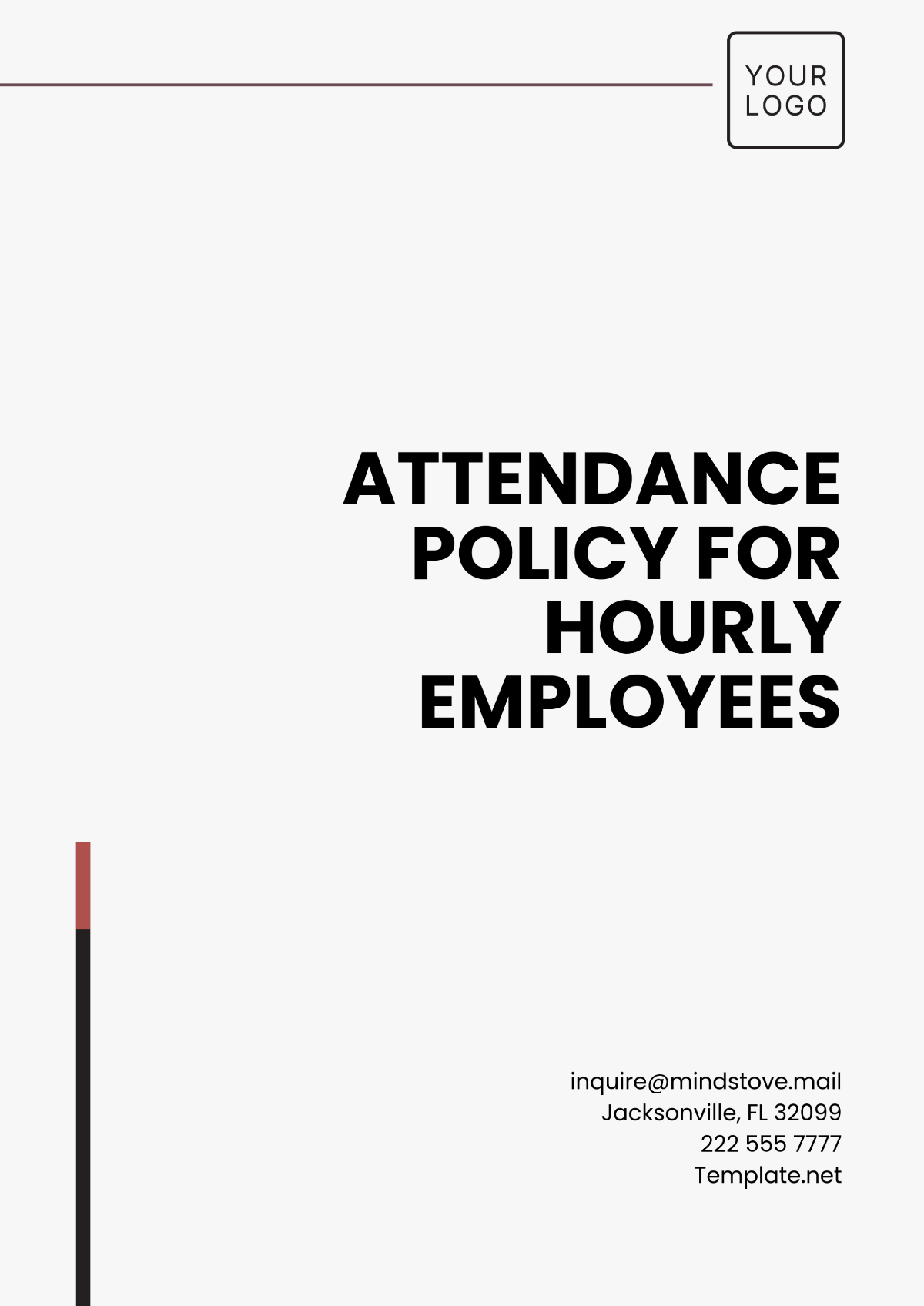Employee Attendance Rules
Introduction
This document outlines the attendance policies and procedures for employees to ensure consistent and fair management of attendance-related issues. Adhering to these rules is essential for maintaining operational efficiency and a positive work environment.
Purpose
The purpose of these attendance rules is to establish clear expectations regarding employee punctuality, absence reporting, sick leave, vacation leave, overtime, remote work, and the consequences of non-compliance. This policy aims to support a productive workplace and ensure that all employees understand their responsibilities and the procedures for managing attendance.
Scope
These attendance rules apply to all employees of the company, including full-time, part-time, and temporary staff, regardless of their role or department. The guidelines outlined herein are intended to be applicable to both in-office and remote work settings.
1. General Policies
1.1 Punctuality
Employees must start work on time.
Persistent tardiness will be addressed with disciplinary measures.
1.2 Attendance Tracking
Employees must use the assigned timekeeping system for accurate hours.
Manual entry of hours is permitted only with prior authorization from a supervisor.
2. Absence Reporting
2.1 Notification Procedure
Employees must inform their supervisor at least an hour before their shift if absent.
Notifications can be made via phone call, text message, or an approved messaging system.
2.2 Unauthorized Absences
Unnotified absences may lead to disciplinary action.
A pattern of unauthorized absences may lead to termination of employment.
3. Sick Leave
3.1 Eligibility
Employees can take sick leave per company policy and local laws.
Use sick leave for personal illness or immediate family care.
3.2 Documentation
A doctor's note is required for sick leave lasting over three days.
Without proper documentation, the leave may be unpaid.
4. Vacation Leave
4.1 Request Procedure
Employees are required to submit vacation requests at least two weeks in advance.
Vacation approval is contingent upon business requirements and staffing needs.
4.2 Vacation Balance
Employees can check their vacation balance on the HR portal.
Unused vacation days can roll over to next year, per company policy.
5. Overtime
5.1 Eligibility
Non-exempt employees qualify for overtime pay in accordance with local labor laws.
All overtime work must receive prior approval from a supervisor.
5.2 Calculation
Overtime is based on hours worked over 40 per week.
Overtime pay is 1.5 times the regular hourly wage.
6. Remote Work
6.1 Eligibility and Approval
Remote work needs approval from the supervisor and HR.
Remote work eligibility depends on job role, performance, and operational needs.
6.2 Attendance Requirements
Remote employees must be available during core hours, unless otherwise agreed.
Remote work follows the same attendance and punctuality rules as in-office work.
7. Consequences of Non-Compliance
7.1 Warnings and Disciplinary Actions
Employees will receive a verbal warning for an initial attendance-related infraction.
Subsequent infractions will result in written warnings, with continued non-compliance potentially leading to suspension or termination.
7.2 Appeals
Employees may appeal disciplinary actions by submitting a written statement to HR.
Appeals will be reviewed by a committee to ensure a fair and impartial resolution.


